

Weblife: Email's impersonal (and false) politeness Page 14



Weblife: Email's impersonal (and false) politeness Page 14
The Disciples of Jesus Covenant Community are opening a Bible College in Osborne Park, Perth next year.
The Disciples of Jesus Covenant Community have conducted summer schools around Australia since 1983, in addition to having established a Sydney-based Institute for Evangelization in 1987.
The Institute originally started by offering part-time courses and later went on to offer a one-year full-time course.
Disciples of Jesus Leader for Western Australia Reg Firth said the need for a Perth facility to provide local youth and adults a systematic formation in their faith and training on how to share it has become obvious.
“Through the summer camps, and the work we do in high schools we’ve realised that young people need to have some form of insight into their personal faith,” Mr Firth said.
The ‘Acts 2 College of Mission & Evangelisation’ is open to people who have just left High School, or who are looking for a break from their University or TAFE studies, or from their employment.
“The book of Acts from the Bible starts with Pentecost and the end of that chapter tells about the first Christian communities,” Mr Firth said.
“This was the model for our Christian Community when we started out in Perth,”
Continued on page 4
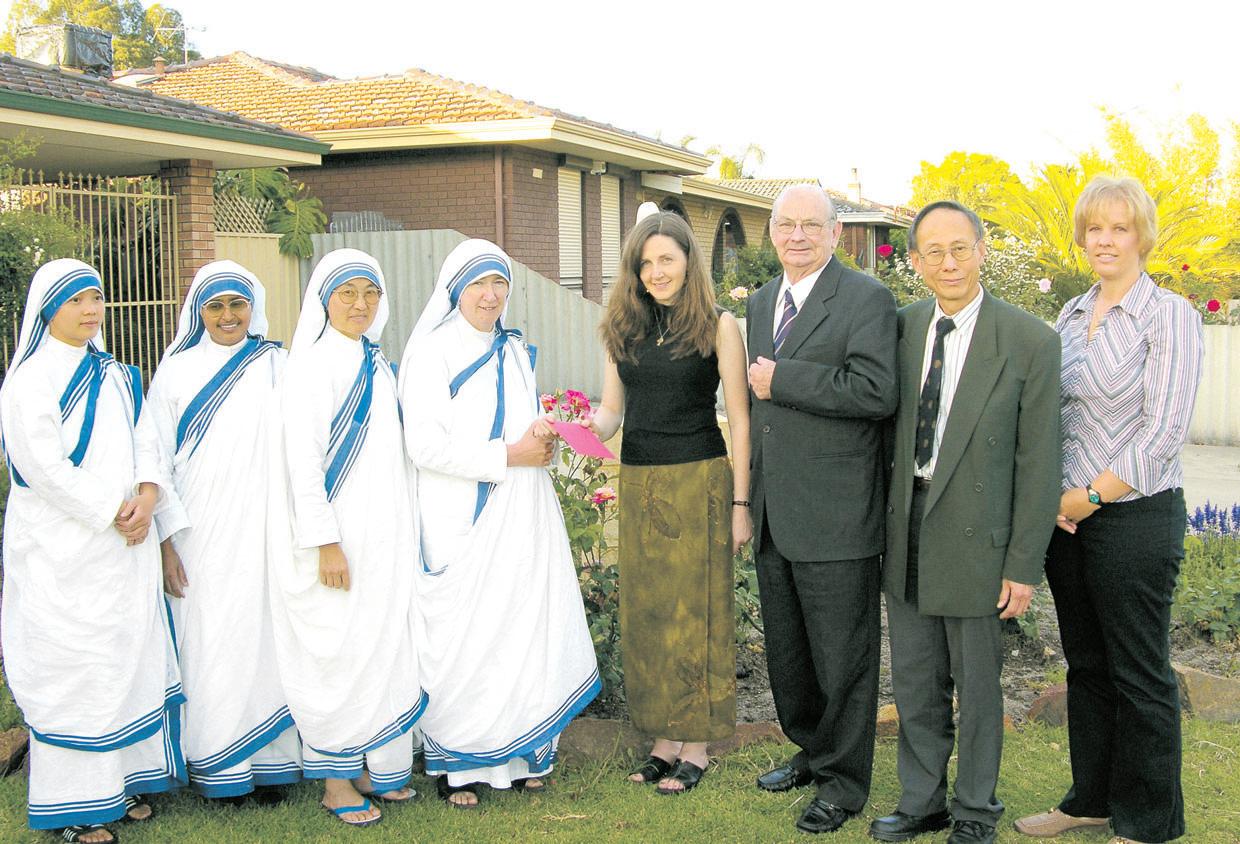
Sisters from the Missionaries of Charity, the order founded by Blessed Mother Teresa of Calcutta, have benefited from a donation of $500 from the WA Catholic Doctors Association.
The presentation was made to Mother Superior Sr Eliezer MC by the President of the Catholic Doctors Association, Dr Amanda Lamont last Saturday, November 6. Dr Lamont said this is
the first donation the Association has made, and she hopes it will be possible again in the future. Sr Eliezer said the money will go to supporting the work by the Sisters and volunteers with local indigenous and migrant families.
A cheque for $500 was also presented to Brian Peachey, for the Pregnancy Assistance Centre, of which he is currently chairman. - Jamie O’Brien
The charitable arm of the Bunbury Diocese will this year provide funding for Missions to Seafarers in the South West ports of Albany and Bunbury.
Announcing the launch of his 2004 Christmas Appeal for CatholicCare, Bishop Gerard Holohan said the proceeds of this year’s appeal will go towards the
Most
diocesan Missions to Seafarers.
“These Missions are doing inspirational work in the ports of Albany and Bunbury for people of the sea. They need us as Sisters and Brothers in Christ. They need us to be there for them, to listen to their problems, to counsel their needs” he said.
CatholicCare was established in 2003 to provide for current

and planned Church assistance for social needs throughout the Bunbury Diocese. The funds raised through CatholicCare remain within the Diocese.
“The Bishop’s Christmas appeal for CatholicCare is the only appeal made each year for the needs of people within our own Diocese. This makes the annual CatholicCare appeal special” Bishop Holohan
said. Bishop Holohan’s Christmas appeal letter, distributed throughout the diocese in the last fortnight, tells two tragic stories of seafarers taking their own lives.
“Today, seafarers are isolated from their families, their friends and their parish communities. Many whose ships come into the ports in our Diocese are Catholics.
Continued on page 2
The 150th anniversary of the first Catholic Church built in country WA will be celebrated at Dardanup on December 5.
Bishop Gerard Holohan will celebrate a thanksgiving Mass at 10am. A plaque will be unveiled, memorabilia will be displayed and a light lunch will be served.
The foundation stone of the original Church of the Immaculate Conception was laid by Dom Rosendo Salvado, of New Norcia fame, in March 1854, but the Church was not completed and opened until April 1857.
The laying of the foundation stone at Dardanup preceded by a few months a similar ceremony conducted at Albany by Bishop Serra, but it was much longer before Albany actually completed a church.
Thomas Little gave Bishop Serra 50 acres of land for the church at Dardanup and he and his neighbours set about erecting it.
However, in a letter to Archbishop J.B.Polding of Sydney, dated July 11, 1856, Little lamented, “For the finishing I fear our dear Lady will look but coldly on us for our tardiness in this point. The floor indeed is sawn and being seasoned, but we have not a shilling to pay for laying it, or for door and windows, or plastering the walls, which are
Continued on page 2
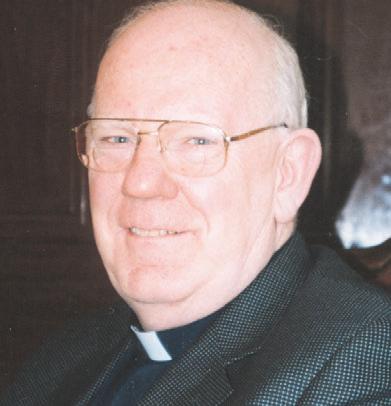
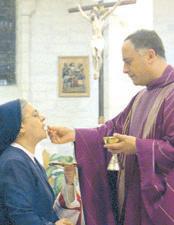
The Record, established in 1874, is distributed to Catholic Churches, presbyteries, religious houses and subscribers throughout the Archdiocese of Perth, Geraldton, Bunbury, Broome and overseas.
Managing Editor
Peter Rosengren
Production/
Office Manager Kylie Waddell
Bronwen Clune Jamie O’Brien
Hugh
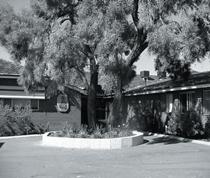
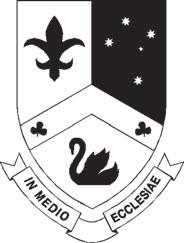
Continued from page 1
With heavier workloads, quicker ship turnaround times and now heightened security in ports, they become shut off from the rest of the world. They often refer to themselves as prisoners that have no country and no home” said Bishop Holohan in his letter to parishioners.
“As individuals we can do little. However, by supporting CatholicCare, you give our Seafarers’ missions in Albany and Bunbury the chance to deliver Church based care and support” he said.
From 2004, CatholicCare plans to set aside some of the funds raised for a foundation to provide welfare assistance for emergency situations.
CatholicCare will provide funding for people in need across the general community throughout the
Diocese of Bunbury. Its motto is “People Helping People”. These needs include family crises, the special needs of the elderly, drug victims, and women facing a crisis pregnancy.
Bishop Holohan called on all people in the Bunbury Diocese to give generously to this year’s appeal.
“CatholicCare needs your financial support, and so I appeal to your generosity during the lead up to Christmas, to help to bring Church based financial support to the people who need our help” he said.
Donations received by CatholicCare are tax deductible and will be used exclusively within the diocese. All donations will be quarantined from, and accounted for independently of, other diocesan and parish funds. Distribution of funds will be under the control of the Bishop of Bunbury.
The Bishops of Western Australia gathered in Perth on Tuesday and Wednesday for their regular meeting to discuss spiritual and administrative matters affecting the Church in WA Archbishop Barry Hickey and Auxiliary Bishop Don Sproxton, of Perth, were joined by Bishop
Justin Bianchini of Geraldton, Bishop Gerard Holohan of Bunbury, and Bishop Christopher Saunders of Broome.
Following their meeting, all travelled to Bunbury to join Bishop Holohan in the Wednesday evening celebrations for the 50th anniversary of the erection of the Bunbury Diocese in 1954.
Also in Perth on their way to the Bunbury celebrations were Bishop Patrick Doughherty of Bathurst, NSW, Auxiliary Bishop Brian Finnegan of Brisbane, and Mgr Francisco Padilla, Councillor to the Papal Nunciature in Australia. A full report of the Bunbury event will appear in The Record next week.
Continued from page 1
all brick.” After the church was completed in 1857 it served a growing Catholic population until 1938 when it was replaced by a larger building and was then used for school and parish purposes.
After some restoration in 1979, it was re-named the Thomas Little Hall.
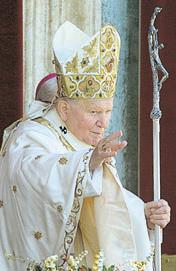
Former parishioners or their descendants are invited to join the celebrations on December 5 and can contact Mrs Gwen
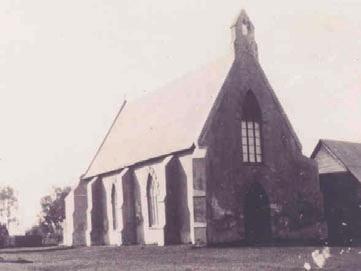
The old Dardanup Church
Wells of Dardanup on (08)9728
1157. It will be the second big celebration in Dardanup this year.
The first was the Busher family
reunion to celebrate the arrival (from Ireland) of James and Ellen Busher and their four sons in 1854. The extended Busher clan includes the Depiazzi, Garbellini, Panizza, Morellini, Wringe and Piacentini families – all well known names in Dardanup and the South West. That occasion was marked by a thanksgiving Mass, the unveiling of a commemorative stone at Dardanup’s Pioneer Catholic Cemetery, and the publication of a family history.
by John B Keane
... a father returns after twenty years...
at the Irish Club of WA
61 Townsend Rd, Subiaco
Wed Nov 17 - Sat Nov 20
Wed Nov 24 - Sat Nov 27
nightly 8pm
Tickets $15/$12 includes tea break.
9367 6026




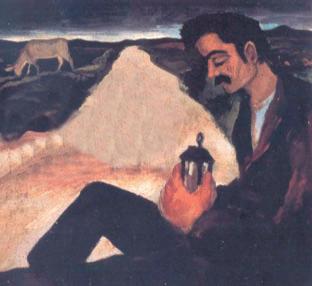
One reason Pope John Paul II launched a Year of the Eucharist is that he wants Catholics to deepen their understanding of the real presence of Christ in the sacrament of Communion.
The Pope has stressed that this is not a symbolic or metaphorical idea.
It means believing that Christ is present - body, blood, soul and divinity - under the appearances of bread and wine in Communion.
In his encyclical last year on the Eucharist, the Pope said this is “a presence in the fullest sense: a substantial presence whereby Christ, the God-man, is wholly and entirely present.”
Quoting St Cyril, the Pope explained further: “Do not see ... in the bread and wine merely natural elements, because the Lord has expressly said that they are his body and his blood ... though your senses suggest otherwise.”
The Church teaches that bread and wine become the body and blood of Christ through the intervention of the Holy Spirit at the act of consecration in Mass. It recognizes that this is a unique process, part of a mystery that can be understood only through faith and never fully explained in words.
The doctrine of the real presence has challenged Christians from the first days of the Church.
The apostles, all of Jewish
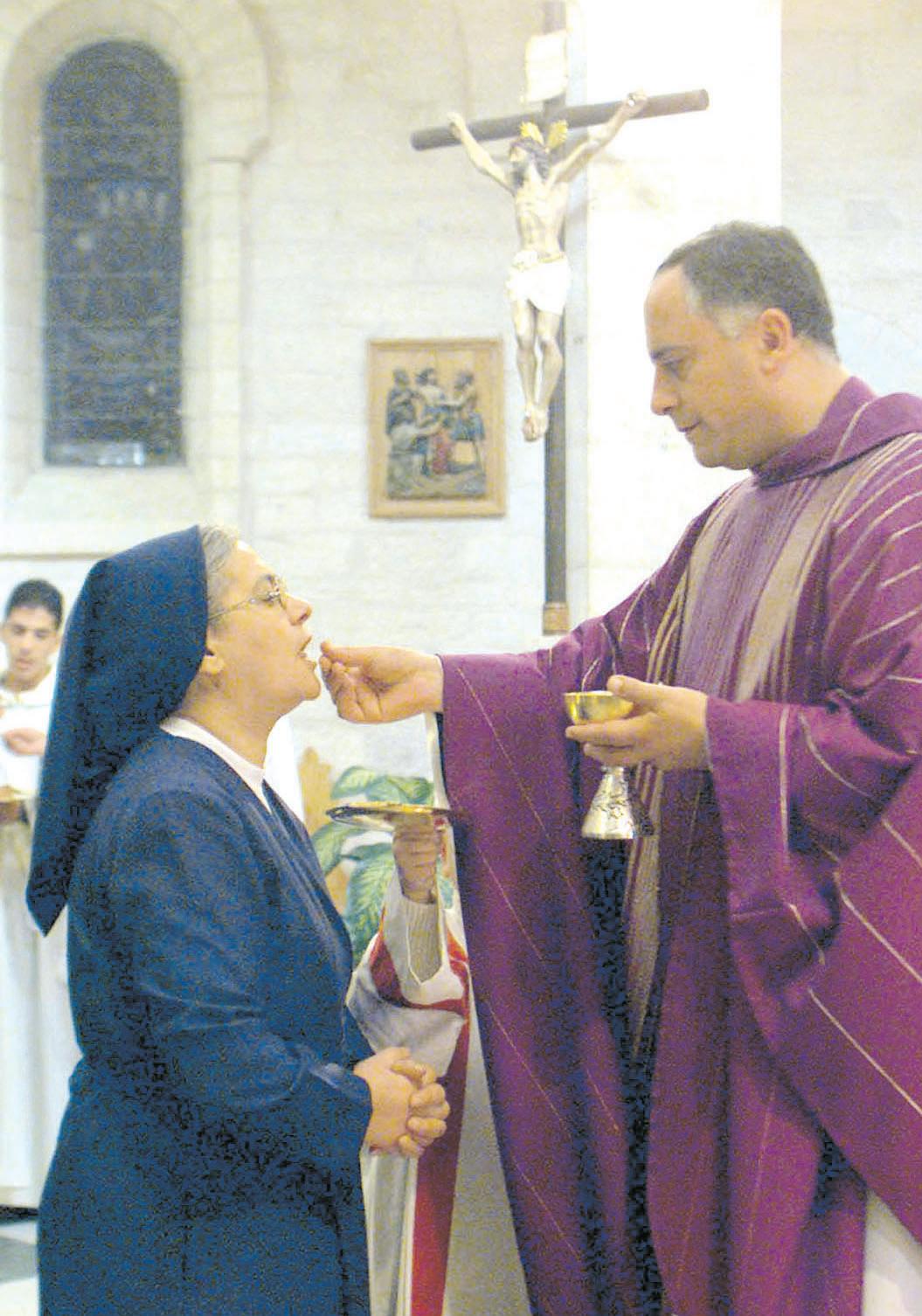
descent, were scandalised when Jesus first said to them: “Truly, truly, I say to you, unless you eat the flesh of the Son of man and drink his blood, you have no life
in you. For my flesh is food indeed, and my blood is drink indeed.”
(John 6:53-55)
According to the late biblical scholar, Father Raymond Brown,
the apostles were taken aback by well-embedded moral and religious connotations associated with eating human flesh. For ancient Jews, Father Brown said, “eating flesh” also had a metaphorical significance, meaning to revile or to slander, that created problems of understanding.
According to some of Rome’s leading theologians and liturgists today, the real presence is still a controversial and misinterpreted doctrine, yet for different reasons.
Father Thomas Williams, a member of the Legionaries of Christ and a professor of theology at Rome’s Regina Apostolorum university, said the main issue is that most of the faithful do not take Christ’s New Testament pronunciation literally.
He said that many Catholics do not believe they are actually eating Christ’s flesh and drinking his blood, except symbolically. He blames such misperception on modern man’s “over-reliance” on his senses.
The eucharistic miracle - termed “transubstantiation” by the Council of Trent - involves maintaining the external appearance of bread and wine while changing their inner “substantial” qualities to Christ’s own flesh and blood.
Father Williams said this is not easy to believe, but that a wider general awareness of God’s presence in the world will help people understand it.
“God chose to take flesh in a smelly stable in the Palestinian outback, to live, eat and sleep among us. The world in which we live speaks to us of God, and God himself chose to use them
(material things) ... to communicate (himself) to us,” he said.
Father Williams said that when belief in the real presence is absent or weak, partaking in Communion can become a mere ceremonial gesture. The need to be free of serious sin to receive Communion may also lose importance for Catholics, he said.
“Obviously, skepticism regarding the real presence contributes to the latter abuse, since if the Eucharist merely ‘symbolises’ Christ’s presence it matters little whether one is in a state of grace or not,” he said.
“It used to be that respect for the greatness of the Eucharist would lead some - and at times many - to abstain from the Eucharist. In more recent times the pendulum has swung in the other direction,” he said.
Father Dennis Gill, liturgical director at the North American College, said celebrants can do much to inspire greater belief in the real presence.
One issue today, he said, touches upon liturgical practices that demonstrate clearly to the faithful that something sacred is really present before them. Celebrants do this “by their own example, by carrying out the Mass in a certain reverent way - especially through proper posture and gesture,” he said.
“There should be nothing that appears routine,” he said. “The use of such signs as incense and bells helps to highlight the sacred mystery that occurs with the eucharistic prayer.
“We must do this because Christ is really there in the sacrament,” he said. “It’s that simple.”
- CNSTo implement this special Year of the Eucharist called by Pope John Paul II
from October 2004 to October 2005 The Record has collected some suggestions you might like to try out. If you have an idea, why not share it with everyone? Write to us here at The Record, PO Box 75 Leederville WA 6902 or email us at cathrec@iinet.net.au
Possible personal resolutions:
• take to heart the invitation from the Holy Father to make this a special year of devotion to Our Lord truly present in the Holy Eucharist
• ask Jesus to help you grow in your faith and love for him
• read something to improve your knowledge of the Mass and the Eucharist
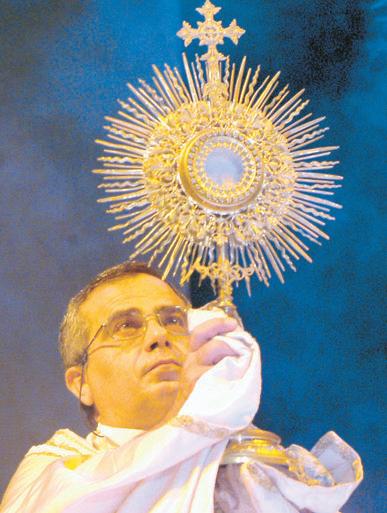
• consider the possibility of attending Mass more frequently during the week: one or two days besides Sunday or even daily
• apart from the Mass, consider making a visit to the Blessed Sacrament each day on the way home from work, while picking up the children and spending just a few minutes with Our Lord
• as you pass by churches and chapels remember that Christ is truly present in every tabernacle: he awaits there
• while at home or at the office, keep in mind the location of the nearest tabernacle
• express your love for Jesus frequently
• show respect for Christ really present in the tabernacle when you are before him
• go to Confession often, at least once a month, as part of your preparation for Communion
With regard to your parish:
• if perpetual adoration is held there, sign up to watch for one hour each week
• if perpetual adoration is not held there, consider proposing that and working towards it
• if there is adoration one day each week, sign up to accompany Our Lord for some time
• if there is no weekly adora-
tion, con sider proposing that and supporting it
• suggest that at least there might be Benediction some days during this Year of the Eucharist, perhaps once a month, or even as part of a weekly Holy Hour
• volunteer to help prepare for the feast of the Body and Blood of Christ (May 29, 2005)
• perhaps have a Eucharistic procession for this feast day
• perhaps propose even a oneday parish Eucharistic Conference or Congress with Exposition and Benediction with the Blessed

ISacrament, with conferences, talks, hymns, periods of silent adoration, etc
• make available good literature on the Mass and the Eucharist: books, pamphlets, prayers, handouts, etc
• offer to help see that the tabernacle is adorned with lights, flowers, etc
• help prepare posters that announce and remind everyone of the Year of the Eucharist
• help prepare the children of the parish to appreciate the Year of the Eucharist
would like to thank you my wonderful Parish, family and friends for encouraging me, for supporting me, so that after 3 years of "one thing after another" the CD is finally achieved.
I have chosen a wider range of hymns and songs for this CD but the asssurance of God's great love for us is still the heart and soul of it all.
Thank you for your loving patience as you asked over and over again "How's that CD going?"
Well here it is!!!
I hope the wait was worth it.
God bless you all.
Mary Croft
I BELIEVE IN ANGELS is available from The Record for $19.95 including postage. Contact Kylie on 9227 7080 to receive your copy of this remarkable CD by Mary Croft in time for Christmas.
Continued from page 1
“Living a life like the apostles did was part of our focus as a way of helping other Christians live life in society today.
“Sometimes students completing Year 12 are unsure of exactly the direction they should take when they leave High School,” Mr Firth said.
“The one year course is designed to assist Catholic youth grow in their faith and also prepare themselves for future University/ TAFE studies or employment.”
The courses, which will be at Certificate and Diploma levels, can provide a bridge year for these students.
Mr Firth believes the College will also be an excellent preparation for people considering mission in other countries.
Disciples of Jesus members are actively in mission throughout Indonesia, the Philippines, Papua New Guinea, Russia, and Darwin.
They also have 4 teams that spend a year on mission to Catholic youth around Australia.
Mr Firth said the DJ Community consulted a number of young Catholic adults who are active in areas where ‘Bible Colleges’ are effective, on the need, vision, curriculum, and related matters.
Subjects are designed to help students to grow in their understanding and application of the Catholic faith, through a study of Sacred Scripture and doctrine.
According to Mr Firth, classes are not at University level, but will look at breaking open the catechism, encyclicals and will also talk about evangelization and Pope John Paul
The Abortion Grief-Counselling Association will be holding a talk by National Co-ordinator Julie Cook on recent research involving unresolved Abortion Grief.
The talk will be held at Grace Vaughan House, 227 Stubbs Terrace, Shenton Park, on Monday , November 29 at 7pm, and there is no cost involved.
For further inquiries contact event organiser Margaret on 9313 1784.
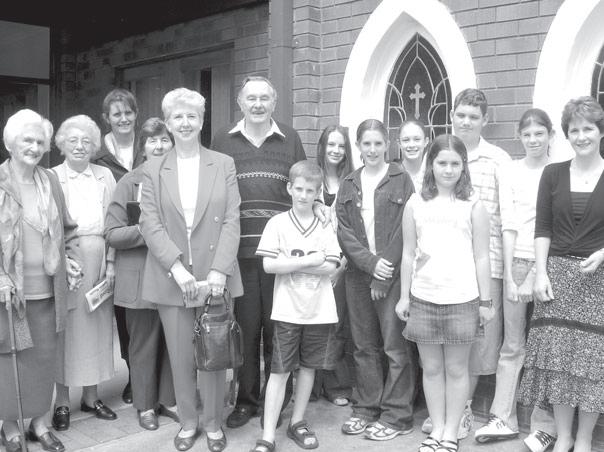
Kalamunda Parish is inviting all past and present parishioners to join in celebrations of the Parish’s 50th Anniversary.
The event will be held on Sunday, December 5 at Holy Name Parish, on the corner of Burt and Railway Road, Kalamunda.
Mass will be celebrated at 10.00am followed by light refreshments.
Parish Priest Fr John Cranley is inviting all past and present parishioners to contribute photos, memorabilia and recollections for a display.
A Time Capsule will also be buried on the day. To be a part of this project, please phone Philip Cox on 9293 4735.
Additional subjects will give practical support in areas that young people face today, in terms of relationships, self image and peer group pressure, character, dignity, work, budgeting, goal setting, leadership, and the role of spirituality in today’s society.
“Everyone has a spiritual life, we are spiritual beings,” Mr Firth said.
“But the role of spiritual life is not promoted,” he said.
“We neglect our spiritual aspect, who we are as people, how we are influenced, how God is at work and how we can be more balanced when we attend to things more spiritual.”
Through his experience of running workshops for youth in schools, Mr Firth believes young
people are open to the spiritual life but not organised religion and there is a willingness to listen to Jesus Christ if he’s presented as who he is.
As part of the curriculum, projects will also integrated into the student’s weekly timetable, which will assist them in developing their character, faith and skills of Christian service.
Students can also have the possibility to be placed into a voluntary service situation in their sponsoring Parish or Organisation for the duration of the year.
“Students will be exposed to life issues impacting on our society and will consider current and other methods to deal with them,” Mr Firth said.
In Archbishop Hickey’s letter of recommendation he confirms that

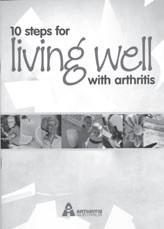
‘the content of the presentations and the Catholicity of the College will be at all times subject to the approval and scrutiny of the local Ordinary’.
Among the teachers at the college will be Bishop Don Sproxton Bishop Julian Porteous from Sydney, Fr Don Kettle, from Catholic Youth Ministry, Fr Tim Deeter, Jennifer Carol, Rebecca Von Perger, Paul Kelly and Mario and Jane Borg.
The College contact hours will be on Mondays and Tuesdays during School terms.
Mr Firth says this is so that students are able to obtain part-time employment.
Further details, and an application form can be obtained from the website at http://acts2come. disciplesofjesus.org or by contacting the College on 9202 6868.
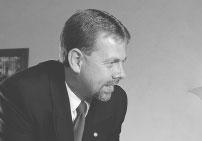
John Tidman
Costs come from five main areas:
1. Funeral directors costs, covering professional fees, transportation, facilities and equipment
2. Coffin or casket – we offer a large and varied selection, from simple veneered particle board to solid or carved timber, so that we can meet the needs of all families
3. Cremation or burial site fees
4. Other costs such as flowers, clergy fees, press notices, registration of death fees
5. Cost of headstone, monument or plaque.
Many funerals these days cost around $5,000-7,000. At Purslowe Funeral Homes every funeral is tailored to the preferences and needs of the family and so costs can vary. We provide an up front estimate of costs so that you know what charges are being incurred. In this way, you remain in control and the final cost depends on the choices you make.
Good information about costs is an important part of funeral planning. For more information visit our website or call John Tidman or Siaˆn Wenn. You’ll find us easy to talk to.
You can turn to the people at Purslowe
www.purslowefunerals.com.au
289 Albany Highway, Victoria Park ☎ 9361 1185
PFHVP155
The search by young people around the world for truth, happiness and fulfilment in life was at the heart of San Salvadorean Bishop Gregorio Chavez’s talk on Monday November 1 to staff at The Record.
Bishop Chavez, a close friend and colleague of assassinated El Salvadorean Archbishop Oscar Romero, spoke for more than an hour to Record staff and staff from archdiocesan agencies before taking questions.
His visit to Perth was part of a national visit to El Salvadorean communities around Australia at the invitation of Australian bishops.
“What kinds of Church do the young people want right now?” the Bishop asked.
“One that is missionary and paschal.”
Bishop Chavez is Auxiliary Bishop of San Salvador in El Salvador.
Archbishop Romero, a strong critic of appalling human rights abuses, was assassinated by members of the El Salvadorean military in 1980.
However Pope John Paul II had confirmed to Bishop Chavez that the slain Archbishop was a martyr and would be beatified next year, Bishop Chavez said.
Bishop Chavez and Archbishop Romero worked together when Chavez was a young seminarian and Romero already an Archbishop.
On youth, Bishop Chavez related an experience he had had in Germany at a meeting with young people; ‘What would you say to your Bishops if they were here now?’ he had asked them.
“The most incredible response was the fourth reply,” he said.
“A young man said, ‘I will tell my Bishops that the Church asks questions to which we don’t have any answers, is answering questions that we don’t ask and doesn’t respond to the questions

that we do have.” The Bishop believes that dialogue is not working with young people.
“Young people are looking, trying to make sense of life and they go from one bad experience to the next.”
“They can’t find it on the Internet, or through drugs or money, but we don’t present Jesus Christ as an answer.”
“They don’t want to hear about Christ, they want to see Him.
“We need to give Catholics, or Christians a strong formation about their faith so they can survive in this world,” Bishop Chavez said.
Bishop Chavez, who is also Director of Caritas in El Salvador, condemned what he described as globalisation’s two key effects in his native country and continent.
Firstly, “There is an economic model that exists in Latin America that works by excluding people and by making more poor people,” he said.
On the cultural front, a liberalised economy was built on materialism, individualism, consumerism and hedonism. “This
goes against the Latin American culture which is built on human values, family values and spiritual values,” Bishop Chavez said, noting that globalisation’s corrosive effect seems to be transmitted significantly through television. The Bishop also related some of his own personal experiences of Archbishop Romero.
A young man said, ‘I will tell my Bishops that the Church asks questions to which we don’t have any answers, is answering questions that we don’t ask and doesn’t respond to the questions that we do have.’
“In his diary my name comes up frequently and that’s how I got to know some of the happy moments and the not so happy moments.”

According to Bishop Chavez, Archbishop Romero was misunderstood by his fellow El Salvadorean bishops. With five other bishops in the country, only his eventual successor, Bishop Rivera understood him. On many occasions votes on decisions were four to two against them.
Even the-then papal nuncio to El Salvador had a negative view of the Archbishop, and when he tried to bring bishops together Romero was the one who had to make all the concession because he was thought to be the guilty party.
Archbishop Romero said, “I am willing to make whatever necessary changes except for two; my fidelity to the Gospel and my fidelity to the people.”
In response to a question about the challenges being faced by the Church in today’s Latin America, the Bishop mentioned a book by Cardinal Ratzinger, God and the World.
“According to the Cardinal it won’t be a very strong and powerful Church but it will be a very humble Church and it will live in small communities.” During
the course of his speech, the Bishop said the Western world looks at the Church in a different way to the way it is regarded by people in the Latin American world.
“We look at a parish as missionary and a place of evangelization,” he said.
“In the Western world, we look at parishes like a petrol station, where you go in for a service; that’s why the emphasis is in the different movements,”
“We want a parish to be a community of communities,” he said.
Bishop Chavez also spoke about the survival of the Church in the third millennium.
“It is obvious the Church will survive because it has the promise of Christ but it will be a very small and humble Church,” he said.
“We have to be witnesses to Christ; humble, without any power, only with the force of the Gospel.”
“That image of the powerful Church is coming to an end and we are coming back to the Church of the poor.”
During his stay in Perth, the Bishop also gave a retreat to the Salvadorean community.
The Bishop said he spoke at the retreat about how the Church can show Christ to young people.
“A young girl said to me, ‘this is exactly my situation, I’m trying to make sense of life’.”
According to Bishop Chavez, there is also a need to globalise solidarity as a counter to the negative effects of the current trend to globalisation. He spoke about the Eucharist as a school of solidarity and Pope John Paul II’s teachings on the need for a love of the poor.
“The Pope said the Church must be a place where the poor feel at home. When this happens, this is the Church of Christ,” he said. Bishop Chavez also quoted Pope Paul VI, who encouraged the need to discover the face of Christ through the life of the poor. “Therefore we talk about globalising solidarity.”
Jesus came for two reasons – to heal and to forgive.
“This is valid for everyone - also for the rich,” he said.
The Governor-General, Major-General Michael Jeffery, first earned a public reputation for courage as a serving soldier in Vietnam and as head of the SAS. He added wisdom to that reputation during his term as Governor of Western Australia, particularly during the International Year of the Family in 1994 when he made a number of outstanding speeches about the meaning and value of family.
He has enhanced his reputation by speaking out clearly about the serious problem of abortion in Australia. According to what was reported in the media, it is clear that he passed no judgement, made no criticism, proposed no laws, and suggested no penalties.
Instead, in a role that befits a Governor-General, he called on all Australians to look at the facts surrounding some 100,000 abortions a year and to do everything we can to reduce the number. He pointed out that these deaths of young Australians are about the same as our immigration intake and added, “It’s a lot of lives.”
“I would agree with any prescription that said that we all have to work together to keep it to an absolute minimum,” he reportedly said. Although many people have been slow to recognize it, the GovernorGeneral has created an opportunity for all shades of opinion to unite around a non-legislative program to drastically reduce the number of abortions.
PO Box 75, Leederville, WA 6902
Tel: (08) 9227 7080, Fax: (08) 9227 7087 cathrec@iinet.net.au
The political and social response to his leadership will tell us a lot about the real state of our minds and hearts. All sides of the debate claim that abortion is a terrible decision, so why not combine to ensure that women and girls do not have to make it? All sides now know that all women suffer from abortion and many women suffer profoundly for a very long time.
All sides know that men suffer deeply from abortion – the fathers of the children and the fathers of both the young parents.
It is not so commonly agreed, at least publicly, but surely it is obvious that society as a whole suffers from the deliberate destruction of about 100,000 lives each year. The effects on society are often not easy to see and are even harder to measure, but they are real. The nature of the problem was revealed, almost inadvertently it seemed, in a brief article on the renewed abortion debate in the national morning daily on Monday. A young women revealed that at 16 she had an abortion.
The 18-year-old father “did not cope with the termination and turned to crime, spending three years in jail for armed robbery”. Pregnant again at 21, she planned another abortion but decided against it out of concern for the father who wanted to keep the baby. They now have a 16-month-old daughter named Claudia. Her reward: “I wouldn’t be alive without Claudia. She taught me what it is to love.”
When you look at the loss on one hand and the gain on the other, the meaning behind the Governor-General’s appeal becomes clearer.
The debate today is not about criminal sanctions – Australian parliaments are simply not interested. It is about reaching out to help mothers, fathers, families and society to avoid the negativity of abortion and choose the positives of life. Those who campaigned against abortion laws claimed almost unanimously that they were not pro-abortion, only pro-choice. Unfortunately, the only choice that is seriously supported is abortion. There is nowhere near enough support given to the option for life, particularly during the pregnancy.
It is more widely known than it is widely admitted that many young women are virtually forced into abortion by those around them. It is time for those who campaigned for choice and women’s rights to put their energies into protecting and supporting the true freedom of women and their babies. They would then find themselves sideby-side with the pro-life groups who have been extending this sort of support to women for years. Out of it might come a more united community bringing about a healthy and uncoerced reduction in abortions. The young woman quoted above is one of a group of young, single and homeless mothers who have been helped by Anglicare during and after pregnancy. She said that having her baby with the group’s support had turned her life around.
The need for such positive support groups as this is much greater now than ever before. Forty years of contraception, abortion and family breakdown have left many young people without parents, aunts, uncles, sisters and brothers who, at another time, would have given them the close relationships and support and guidance they need to see clearly and act wisely in times of stress.
This is a community responsibility and the Governor-General has rightly called on us to recognise and accept that responsibility. Let us hope that community leaders at all levels will begin to speak the same wisdom, and that governments will allocate more resources to the choice for life.
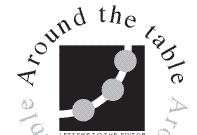

When I go back to my reminiscence, I gratefully remember your valued patronage, which has given me enough strength and vision to continue in my mission work. I wish you a very Happy Christmas and a bright New Year.
May I request you to help me in my new year with rosaries, statues, medals, scapulas, used cards and magazines, school supplies such as ball pens, pencils and other possible help for the new year. Please mail them to address given below.
Fr Paul Cruz
St Antony’s Church Kanjirakodu P.O. Kundara – 691 501 Kollam, Kerala - India
The article defending the Crusades in The Record of November 4 was wonderful.
I found the presentation and artwork excellent. The beauty of the sword and the ancient flavour of the parchment behind the text were inspiring. Not to mention the daunting warrior that greets the reader in the opening page.
The coverage of Madden’s book was quite concise and enlightening. It was gratifying to see the way he
We are preparing a book, which will be titled “The Power of the Rosary.” It will contain stories of historical battles where victory was attributed to the praying of the Rosary. As well as such events we also wish to include personal stories of people whose lives have been touched in some way through the praying of the Rosary for some special intention. We would like to hear from any of your readers who have such a story and assure them that their names, addresses etc or any identifying information will not be used without their specific approval in writing. They will have complete control over how their story is presented. We believe that in reading such stories many people will be drawn to the Most Holy Rosary and Our Lady, and through her to her Divine Son Jesus, so that those who share their stories will be demonstrating their own thanks to Mary in this way.
Ellis Ryan
National President
Our Lady’s Rosary Makers of Australia PO Box 216 Coonamble NSW 2829
exposed frauds and myths about the Crusades and explained their true purpose: solely for religious freedom and not personal benefit.
There were abuses, of course, like in any human undertaking. Abuses taking places in good institutions are found today a dime a dozen.
It’s interesting that we in the Christian West, or at least the Americans, are called ‘Crusaders’ by Muslims. They’re right, in certain respects. We are once again fighting for freedom, not necessarily for our religion, but for the freedom of human lives.
Again we are trying to halt their conquering advance on the rest of the world.
I thank the Record for publishing that article; materials such as that have the potential to incite
a zealous love for the Catholic cause. Along similar lines, early next year the Perth branch of the Confraternity of the Holy Name will hold a retreat for young men at the Franciscans of the Immaculate new Retreat House in Toodyay, precisely on the virtues of Christian Chivalry, as the embodiment of the Sacrament of Confirmation.
Any Catholic teenager or young adult who may be interested in knowing more about it may send his name, postal address and contact telephone number to The Confraternity of the Holy Name, PO Box 201, Burswood, WA 6100.
A program will be posted in due course. Alternatively, send an email to: ConfraternityHolyName @hotmail.com.
Dominic de Souza
Forrestfield.
There is a State election in the air and we don’t want to be guilty of bias or even of interfering with people arriving at their own opinions, but we think it is already safe to make the award for the most unlikely statement to be made in the whole campaign.
It goes to Premier Geoff Gallop who, in a letter to the editor published in The West Australian last Monday, November 8 said: “My Government was the first in Australia to recognize water as a major issue.”
The award has been made in absentia and through long range communication by Premier John Forrest and Chief Engineer C.Y.O’Connor who, just over 100 years ago, built Mundaring Dam and the world’s longest water pipeline from Mundaring to Kalgoorlie.
They were supported in their decision by all those Governments
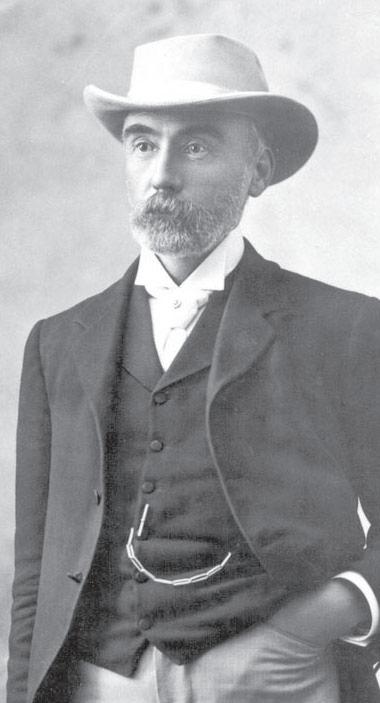 C Y O'Connor
C Y O'Connor
who in the years since have built the Wungong, Canning, North Dandalup, South Dandalup,
Harris River, Stirling, Wellington and Harvey dams and associated long distance pipelines.
Further applause is coming from those who worked for so long to get the Ord River Dam, those who tapped Perth’s underground supplies, and those who built the scores of smaller water supplies in country towns around the State.
From the rest of Australia come the cheers of those who built the Snowy River Scheme, those who have been committed for decades to resurrecting the MurrayDarling system, and all those public health officials who laboured for more than a century on the belief that the biggest advance in human health comes from the provision of clean water and the effective removal of human wastes through sewers.
We hope there are no further serious contenders for this award: they would be just too hard to take.
With the recent controversy surrounding pro-abortion Catholic politicians receiving Communion, at least one lay canon lawyer has seen the faithful awaken to the importance of canon law. Pete Vere, who co-authored “Surprised by Canon Law: 150 Questions Catholics Ask About Canon Law” (Servant Books) with fellow canonist Michael Trueman, is pursuing a doctorate in canon law at Saint Paul University in Ottawa and has worked with the tribunal ministry for the last three years. He shared with Rome-based news agency ZENIT how canon law plays a role in Catholics’ everyday lives.

The answer is in the code
Question: When do most Catholics come into contact with canon law and the Church’s tribunals?
Vere: Divorce is the primary reason most Catholics approach a Church tribunal. Either the individual wishes to attempt another marriage, or the individual wishes to put a broken marriage behind him or her. Thus the individual will petition the tribunal for a declaration of nullity.
In popular parlance, we call this an “annulment.” Nevertheless, the Church does not actually nullify the marriage - that is, take a marriage and erase it. Rather, the Church declares the marriage null. In other words, after a careful investigation the Church determines that something essential to marriage was missing in the relationship from the beginning. Hence, despite the external appearance of the marriage
and the good faith of at least one party, a marriage never existed, as the Church understands marriage.
The practical consequences of this declaration is that the individual is free to attempt another marriage within the Church.
In the past couple of years, sad to say, sexual misconduct among the clergy has become the second most common reason why Catholics in North America approach the Church’s
tribunal. Additionally, the grave scandal caused by pro-abortion Catholic politicians has also awakened many lay Catholics to the importance of canon law.
Question: How does this internal legal system govern the Church’s day-to-day workings?
Vere: Canon law touches upon every aspect of the Catholic faith. It touches upon the Church’s teaching function, such as catechesis,
Continued on pages 8-9
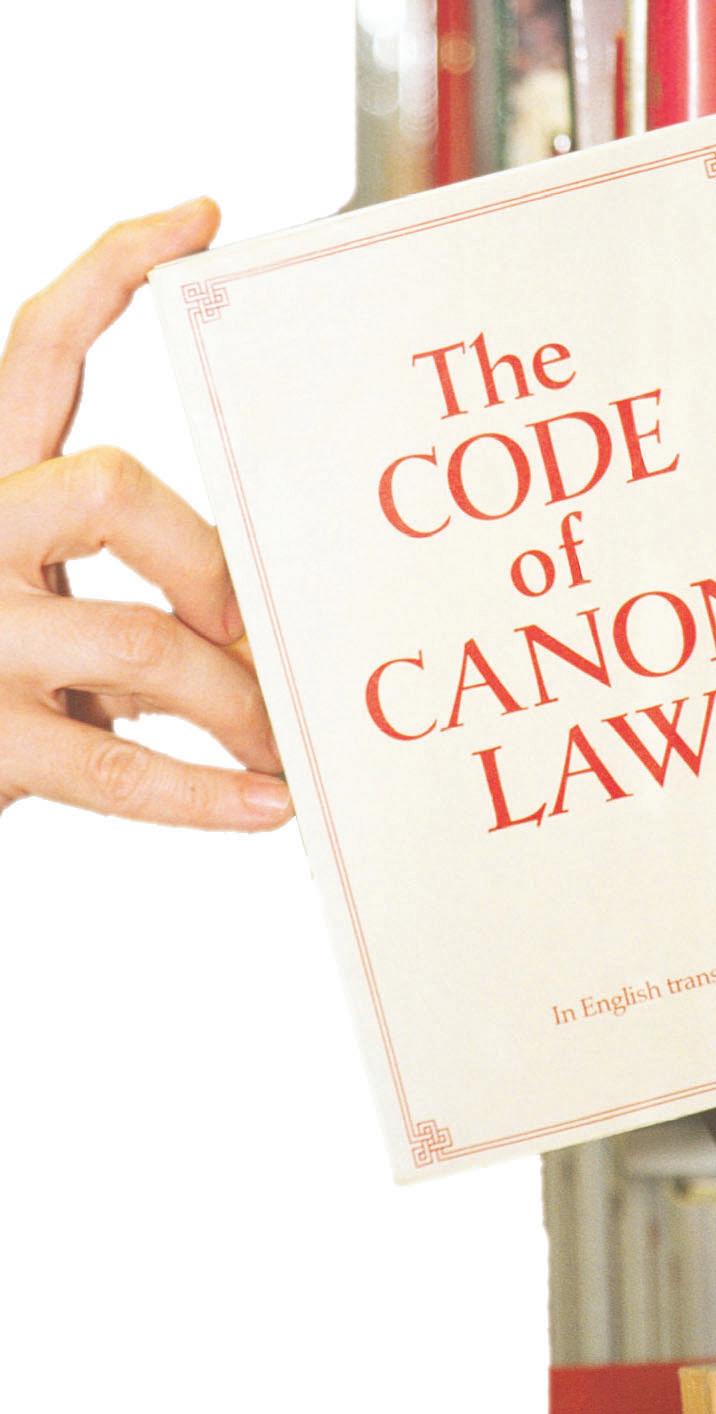

Continued from page 7
preaching and Catholic education. It touches upon the Church’s governing function, from papal elections to whether the Rosary guild can meet in the local parish. And it touches upon the Church’s sanctifying function, such as the administration of the sacraments and the blessing of pious objects.
Thus, most Catholics encounter canon law without ever coming into contact with the Church’s tribunal. Take baptism for example, since baptism incorporates one into the Body of Christ. Canon law governs whose consent is needed to receive baptism - namely, that of the parents in the case of children and infants, and that of the individual for those who are older.
Canon law also governs who can act as a sponsor or godparent to the baptism. The individual should be a baptized and confirmed Catholic who regularly practises his or her faith. Thus a Protestant may act as a witness to the baptism, but not as a godparent or sponsor.
What’s interesting is the exception canon law makes for members of Eastern non-Catholic churches. Given our common heritage as liturgical and sacramental Christians, canon law permits an Eastern Orthodox to act as a godparent at a Catholic baptism if the other godparent is Catholic.
Question: What are the most common questions Catholics have about canon law?
Vere: The most common question is definitely the following: “Are my children considered illegitimate if I receive an annulment?”
Understandably, people are most sensitive when it comes to their children. Thus, my co-author, Michael Trueman, and I answer this question last in “Surprised by Canon Law” for precisely this reason. We wanted the answer to this question to be readily accessible whenever our readers encounter a misconception concerning this issue.
Of course, the answer is no. A declaration of nullity declares
one’s marriage invalid, not one’s children. Thus, Canon 1137 recognises the legitimacy of children born to a putative marriage. A putative marriage is a marriage attempted in good faith by at least one of the parties, but that later receives a declaration of nullity from the Church.
Question: What are the basics of the code that Catholics need to know on a daily basis?
Vere: There are several of basics, both in terms of canonical rights and canonical responsibilities.
Yet Canon 213 provides a nice summary, stating: “The Christian faithful have the right to receive assistance from the sacred pastors out of the spiritual goods of the Church, especially the word of God and the sacraments.” In other words, all Catholics have the right to sound teaching and the means with which to grow in holiness. This is the major point Michael and I wanted to share in our book.
The Code of Canon Law is not some dry juridical text that is far removed from the everyday concerns of Catholics. Rather, it is an exciting outgrowth of the Second Vatican Council’s universal call to holiness and evangelisation. Thus all canons, or individual laws, subordinate themselves to the last canon in the code. This canon reiterates the ancient canonical principle that “the salvation of souls is the supreme law.”
Question: What does canon law have to say about pro-abortion Catholic politicians receiving Communion?
Vere: Quite a bit. Unfortunately, canonists are just as divided as bishops and the lay faithful when it comes to this question. Hence the debate continues. Often, the division seems to be along the lines of age.
My own position is fairly well known: We should show compassion to the mothers who abort their children and excommunicate the politicians. For this reason I support stronger efforts to have
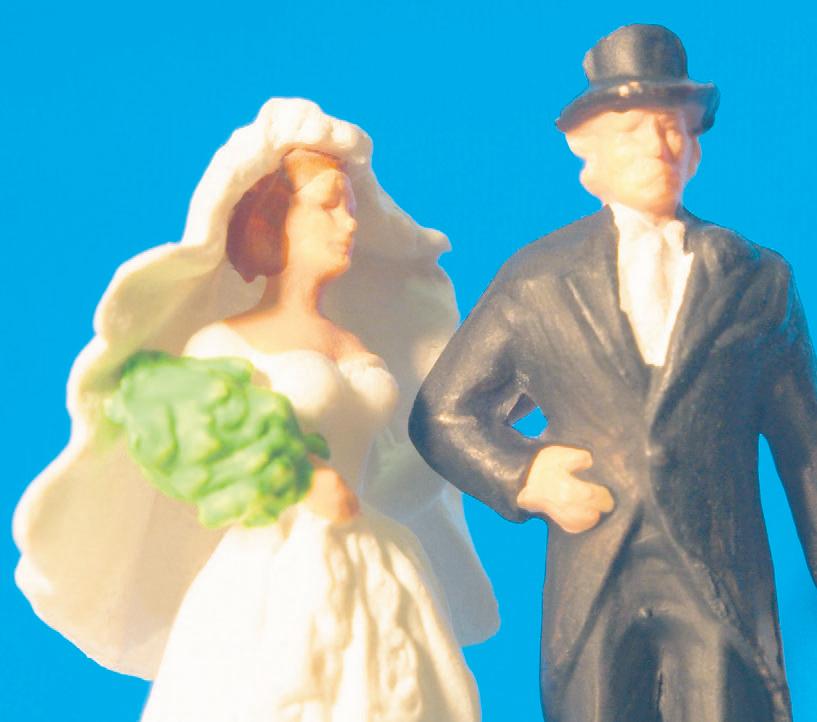
pro-abortion Catholic politicians excommunicated or denied holy Communion. So, too, do many young canonists with whom I have spoken.
Canon 1398 is clear: “A person who actually procures an abortion incurs an automatic excommunication,” the canon states. Abortion is intrinsically evil as an act, and the Catechism of the Catholic Church rightly teaches in paragraph 2271 that abortion “is gravely contrary to the moral law” and an “abominable crime.”
My experience in ministry has taught me that most women who abort their child act under some sort of emotional, mental or psychological duress. I seldom come across an abortion that is freely chosen that is, chosen without coercion from some outside individual or organisation.
Thus, the diminishing and excusing factors outlined in canons 1323 and 1324 apply to most women who procure an abortion. In other words, the act is sinful but the women are spared the penalty of excommunication.
Yet, these women are not canonists. Alone and ashamed, the perception of excommunication only further drives them away from the Church. What they need is Christ’s healing touch in the confessional, as well as sustained pastoral support from pro-life organisations such as Project Rachel.
Christ took the same approach with the woman caught in adultery: He did not excuse the sin, but he did not turn away the sinner. He invited her to repentance and forgiveness.
My feelings differ towards those who profit whether financially or politically - from abortion. This is where the Church ought to direct her censures. We need to get tough with Catholic politicians, doctors, pregnancy counsellors, nurses and lawyers who continue to support and protect the abortion industry.
With regard to doctors and nurses, the second paragraph of Canon 1329 already provides for their automatic excommunication as accomplices who, “without their
assistance, the crime would not have been committed ...”
The canonical situation is more complex when it comes to Catholic politicians. They do not directly participate in abortion. They draft, legislate and protect laws that permit this evil. Therefore the automatic excommunication envisioned by canons 1329 and 1398 would not apply to them since, in keeping with Canon 18, “Laws which prescribe a penalty [...] are to be interpreted restrictively.”
Nevertheless, canon law provides other means to punish proabortion Catholic politicians. At the very minimum, the Church can and should prohibit pro-abortion lawyers and politicians from receiving Holy Communion. Some canonists oppose this type of sanction, pointing out that Canon 912 upholds in the strongest of terms the right of a Catholic to receive Holy Communion.
Nevertheless, the second paragraph of Canon 223 states: “Ecclesiastical authority is entitled to regulate, in view of the common good, the exercise of rights which are proper to Christ’s faithful.”
One is hard pressed to see how permitting pro-abortion Catholic politicians to go unchallenged contributes to the common good - either of the Church or of society as a whole. Rather, abortion destroys the common good in that it destroys the right to life. This is the right upon which all other rights - as well as the common good are based. Thus, I’m a strong proponent of making use of Canon 915 in this case. This canon states: “Those [...] who obstinately persist in manifest grave sin, are not to be admitted to Holy Communion.”
Question: Given the extension of the state into more and more areas, plus the tendency to litigate, do you see the possibility of more conflicts between canon law and civil law, such as with the sexual abuse matters? What happens when canon law and civil law are at odds?
Vere: It can be difficult. While

am not a civil lawyer, my father is. He is also a permanent deacon and is often asked to provide legal counsel when sexual misconduct among clergy comes to light. So we compare notes whenever he needs a canon law perspective or need the perspective of a civil lawyer.
Canon law and civil law are two different legal systems. Each follows its own set of legal principles, and sometimes these principles conflict.
This is especially the case here in Canada and United States where we follow a legal system based upon the British common law. Thus the need for a book like “Surprised by Canon Law” that introduces the reader to how canon law functions.
For example, precedents from a higher court play an important role in our civil jurisprudence, but are less important in canon law. Prescription, or statutes of limitation, are also more important in canon law.
What concerns me the most, however, are recent attempts by the state here in the US to encroach upon the inviolability of the seal of confession. For example, I know of at least one recent case in which a priest from New England spent a month in jail. The court found him guilty of obstruction of justice after he refused to divulge what he heard in the confessional.
Divulging the contents of a penitent’s confession is one of the most serious crimes a priest can commit.
Canon 1388 automatically excommunicates a priest who directly violates the seal. So while the state has now judged this priest a criminal, as a canon lawyer I admire him for his heroism. He remained faithful to the Church’s canonical and sacramental tradition despite legal persecution from the state.
Here in Perth the Tribunal of the Catholic Church, the archdiocesan Canon Law court, can be contacted on 9223 1351.
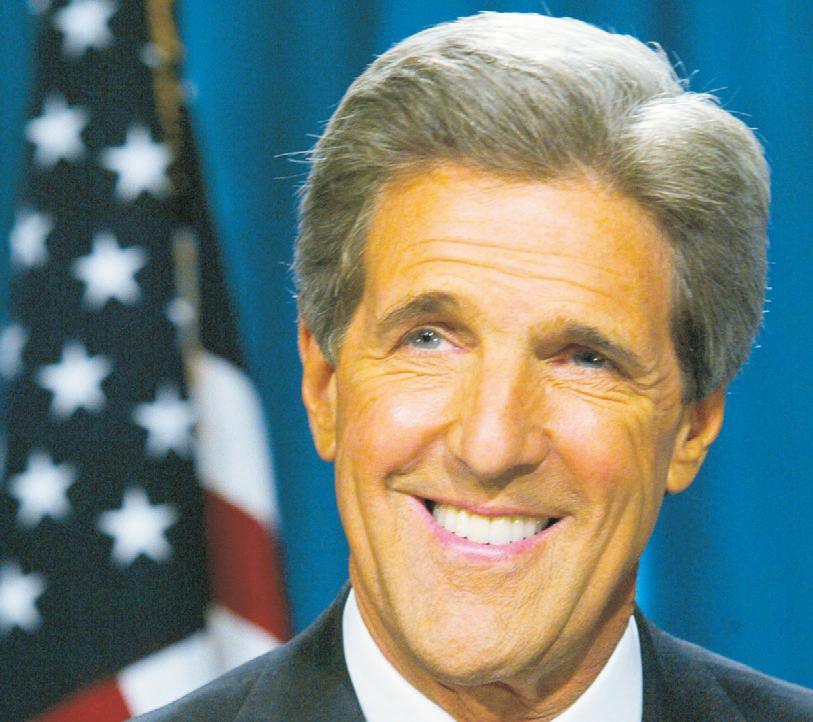
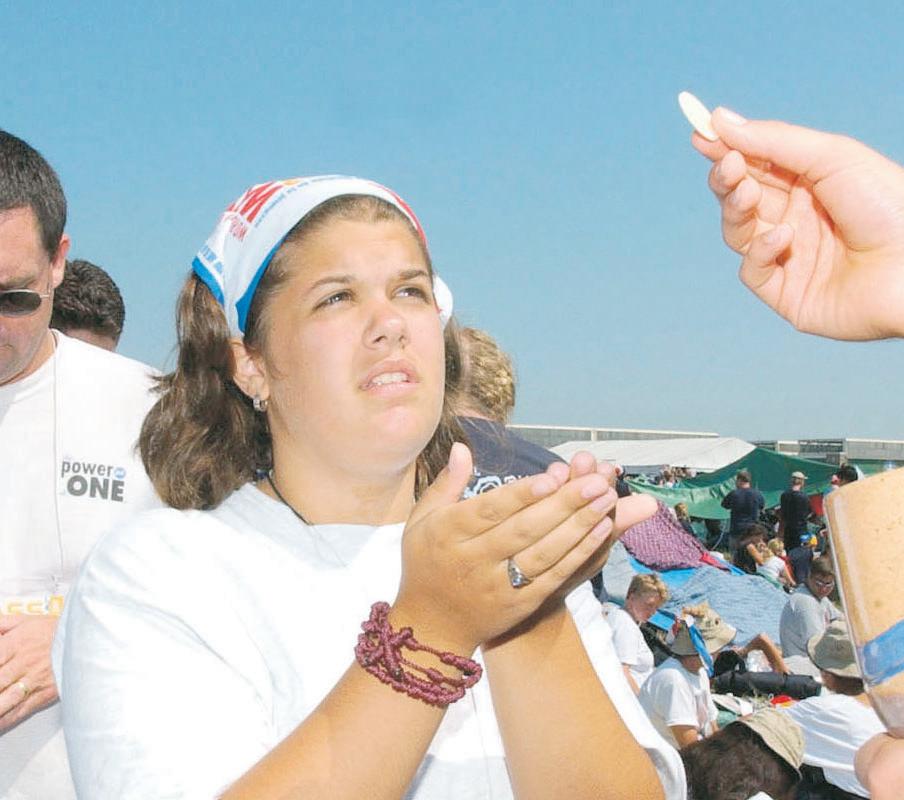

i say, i say
 ■ By Mark Reidy
■ By Mark Reidy
Ihave a theory. Actually there’s no scientific foundation to it, so let’s call it an idea - Earth is the only inhabited planet in the entire universe and the endlessness of space is simply a reflection of God’s love for us. He created an infinite setting simply as an illustration that there are no boundaries to His love. So that all we will ever discover about space is that it is boundless…. and that He made it all for us!
I’m sure if St Paul had been privy to the cosmic knowledge that we have today he would concur. In fact, in his prayer for the Ephesians (3:14-19) he refers to the width, length, height and breadth of the love of God and acknowledges that it surpasses all understanding.
So I’m sure he wouldn’t need to stretch himself too much further to at least consider my notion… that both God’s love and the infiniteness of space are beyond the parameters of our human comprehension.
So having conjured Paul’s approval, let me expand. Without God, mankind continues to search outwardly, senselessly groping deeper into a darkness that we will never understand. Similarly, unless we are, as Paul prays, rooted and founded in the love of God, then we will also continue to stumble around on our own planet hurt-
ing one another, despite our best intentions. Without being truly grounded in God, love becomes distorted within the interpretation of the individual.
The mere fact that we are spending billions of dollars reaching out from our planet when we should be firstly loving one another within it, indicates that we have no real concept of what God has asked of us.
“’Lord, when did we see you hungry, thirsty, naked or a stranger, sick or in prison and did not help you?’ The King will answer them: ‘Truly I say to you whatever you did not do for one of the least of these, you did not do to me’” (Matt.25: 44-45)
The fact that ten per cent of the world’s population controls almost 80 percent of its resources reflects that we are still ‘galaxies’ away from living out His message.
“If you have two shirts, give one to the person who has none; and if you have food do the same” (Luke 3:11).
Even the recent Olympic games provided us with a gauge of the existing imbalance of world priorities. As thousands of proud and patriotic athletes marched into the Athens stadium filled with joy, hope and expectation for the coming two weeks, less than 3000 kilometres away another group of people marched to a much different beat.
Hundreds of thousands of decimated refugees dragged their feet for those entire two weeks through the Sudanese desert in a desperate effort to find food and water across the Chad border. Devastated by bombings, rapes and murders they would only have been focused on living through the day and fortu-
nately would have been spared the knowledge of the millions of dollars and world attention that was being given to a sporting event not so far away. Unfortunately the same ignorance could not be inversely applied, as the trauma of the Sudanese people was already known to the rest of the world, albeit buried deeply underneath Olympic headlines.
It seemed as though the world had heard a distant cry from somewhere beyond the Athens stadium, but it was tragically drowned out by the global cheer which opened the Games.
”If a brother or sister is in need of clothes or food and one of you says, ‘May things go well for you; be warm and satisfied’ without attending to their material needs, what good is that?”(Jam.2: 15-16)
But I suspect that I may be being slightly idealistic to expect the world to pause all space exploration and channel its abundant resources into water and food for its most needy inhabitants, or of cancelling future Olympics until each person has a suitable roof over their head.
Perhaps I shouldn’t dream so big. Perhaps I should simply start at home. Yeah… that’s what I’ll do. I’ll look up at the stars tonight and I’ll remind myself of the infinite and incomprehensible love of God. I’ll remind myself that if I choose to express this love to others it will require personal sacrifice - that sometimes I may need to forgo what I want for what someone else needs.
Hopefully then will I take a step deeper into the eternal love of God that exists in my own personal universe.
The early years of the third millennium have been trying and tricky. Probably not even the fall of the Berlin wall and the demise of Communism in Europe have triggered such farreaching consequences as has the advent of international terrorism.
Emerging from a cold war between two superpowers, Russia and America, we seem to have now plunged into an open-ended struggle with a multinational dimension. We are at peace and yet we live as though we are really at war.
Special units are being trained to withstand possible attacks by an enemy which is somewhere out there, but nobody really knows where. Will the new war be shorter or longer than the cold war?
As a young student in Staten Island, one of the boroughs of New York, I still remember vividly the stand-off over the installation of Russian missiles in Cuba ordered by the leader of the Soviet Union, Nikita Kruschev and opposed by the first Catholic President of the United States of America, John F. Kennedy. The cold war certainly had its spinechilling moments!
Some people have elevated the
ongoing confrontation between Islam and Western society to the level of a ‘clash of civilizations’. As civilizations are known not to arise in one day and disappear the next, we begin to wonder about the consequences on our lives and on the lives of future generations of such a titanic encounter.
Of course only time will tell whether such a scenario turns out to be right or not. But already it is clear that Western societies in particular, including Australia, are in the grip of fear and dogged by a sense of instability within.
National media gave wide coverage to the Bali bombing and its tragic impact, with so many lives lost and so many families left wondering what it all meant. The dread assumption is that such a foul event may be happening again!
Events labeled terrorist attacks seem to present a sort of continuity, almost self-perpetuating, with ripple effects going out into the international community: “What could happen next? What will the terrorists’ next move be? Where could terror strike again?” These questions are asked by many, and more often than not left unanswered.
Yet such instability is a poor point of departure for efforts to decide how to live our lives in a coherent fashion.
A still greater instability may arise from our difficulty in setting this climate of fear within some larger context.
This calls for real effort to dig deep into our collective consciousness as human beings inhabiting Planet Earth.
After my ordination my first appointment was to the parish of St Joachim, Victoria Park. My mentor was one of the last of those legendary Irish Parish Priests, Monsignor Tom Lenihan.
I think the most important and inspirational thing I learned was his commitment to home visitation — in spite of ill health — to keep knocking on doors and, in many cases, calling people back to the Church.
I was also moving around the Mill Towns of the southwest, often spending the night in the sac-
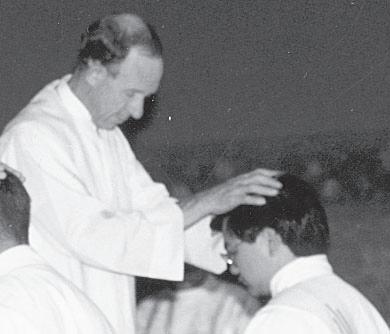 Fr Aldous prays over a new priest.
Fr Aldous prays over a new priest.
risty or back room of a little bush church. Now, in my wheat-belt appointment, it’s moving around the country-side in a good car and (compared to the pioneer days) for the most part on good roads. But the farms are bigger and in many cases the towns are smaller, so the
challenge is to keep alive the mission of the Church in rural areas.
And I believe as much as ever in the value of visiting; not always easy, but made enjoyable by the people one meets and my love of nature and the out-back. It is good, when driving around the countryside, just to be able to take in the beauty of God’s creation – the green when the rain comes, the flowers that grow in the spring, the golden fields at harvest. And if you’ve got time up your sleeve, it’s just good to get out of the car to climb a hill or scramble up a rock!
Over the nearly 40 years since I’ve been ordained, things have changed greatly. Back in the early days it was the priests (and of course the sisters and brothers in
the schools) who were expected to do almost everything. Now, apart from their primary vocation in the world of everyday life, lay people are called to play a bigger role in the ministry of the Church.
So the challenge to the priest of today is to be able to relate and work together with others in many different ways. It might be with a small group at Mass in a rural community (sometimes you might wonder if anyone will turn up at all? – but I’ve always had at least two or three, and Jesus is ‘present in our midst’).
Or it might be with the many different groups or team ministries that help build up the community of a large urban parish. I rejoice in the great variety of charisms and movements that make our Church
truly ‘Catholic’, and I feel privileged to be called to enable people in some small way to discover and use their gifts in the service of the Kingdom. Of course, while some things change, there are others that remain constant and fundamental in the life of the priest. There is the primary call to proclaim the Word of God, with the Scriptures in one hand and the ‘Community News’ in the other. And to bring it all together there’s the joy of celebrating the Liturgy, especially the Eucharist, the focal point of our ministry and the source of unity for the people that we are called to serve.
Fr Geoff Aldous, parishpriestof Northam, in the Avon and Merredin zones, and a vocations promoter, can be contacted on (08) 9622 5411.
The Helper’s of God’s Precious Infants have been dedicating much time to showing women who want to have an abortion, and those that have already had one, that there is help available. HELEN SAWYER from Pregnancy Assistance spoke to JAMIE O'BRIEN from The Record to talk about this special type of work being carried out.
■ By Jamie O’BrienThe Helpers of God’s Precious Infants are a group of people committed to maintaining a loving and prayerful presence outside abortion clinics.
At each clinic, whilst a number of people are praying, others will try to approach and offer assistance.
Mrs Sawyer said the group stopped counting the number of women they had helped at 100.
That was a number of years ago.
On any given day the average number of women given assistance outside the clinics, located in Midland, Rivervale and Balcatta, is 12 to 15.
Even though some will decline help going in, the group is still readily available upon the women leaving the clinic.
“More often the abortions are repeat abortions,” Mrs Sawyer said.
“We don’t aim to make them feel worse, but to try to show them that help is available,”
“We don’t want to add to the heavy feelings of guilt and fear that they already have,”
“Most women go into the abortion without any clear idea of what an abortion entails or the effect it may have on them, emotionally and physically,” Mrs Sawyer said.
Generally, the option of adoption is rejected.
Financial circumstances is one of the most common situations that make the women and their partners feel they would be unable to cope with their first or another child.
Volunteers and counsellors from Pregnancy Assistance, Lord Street East Perth, carry out continued help and all information is confidential.
Some of the ways Pregnancy Assistance can help are free pregnancy testing, counselling and alternatives to abortion, guidance on continuing work or study, alternatives for accommodation, accessing legal aid if necessary, counselling with parents and partners and referral for medical aid.
Mrs Sawyer also spoke about the impact abortion has on men.
“Men feel quite helpless,”
“They are often the forgotten fathers of the situation,” she said. “Studies also show that men who are not helped to mourn over an abortion are learning how to be even less involved as nurturing parents in the future,”
WA law shows no support for a man in his fight against abortion, and the child’s right to life.
According to one father who has spoken to Mrs Sawyer, the situation is ‘pretty screwed up when the way a man shows a woman his love is by agreeing to abort rather than continuing the life.’
Mrs Sawyer said there are two types of situations for women when they have an abortion.
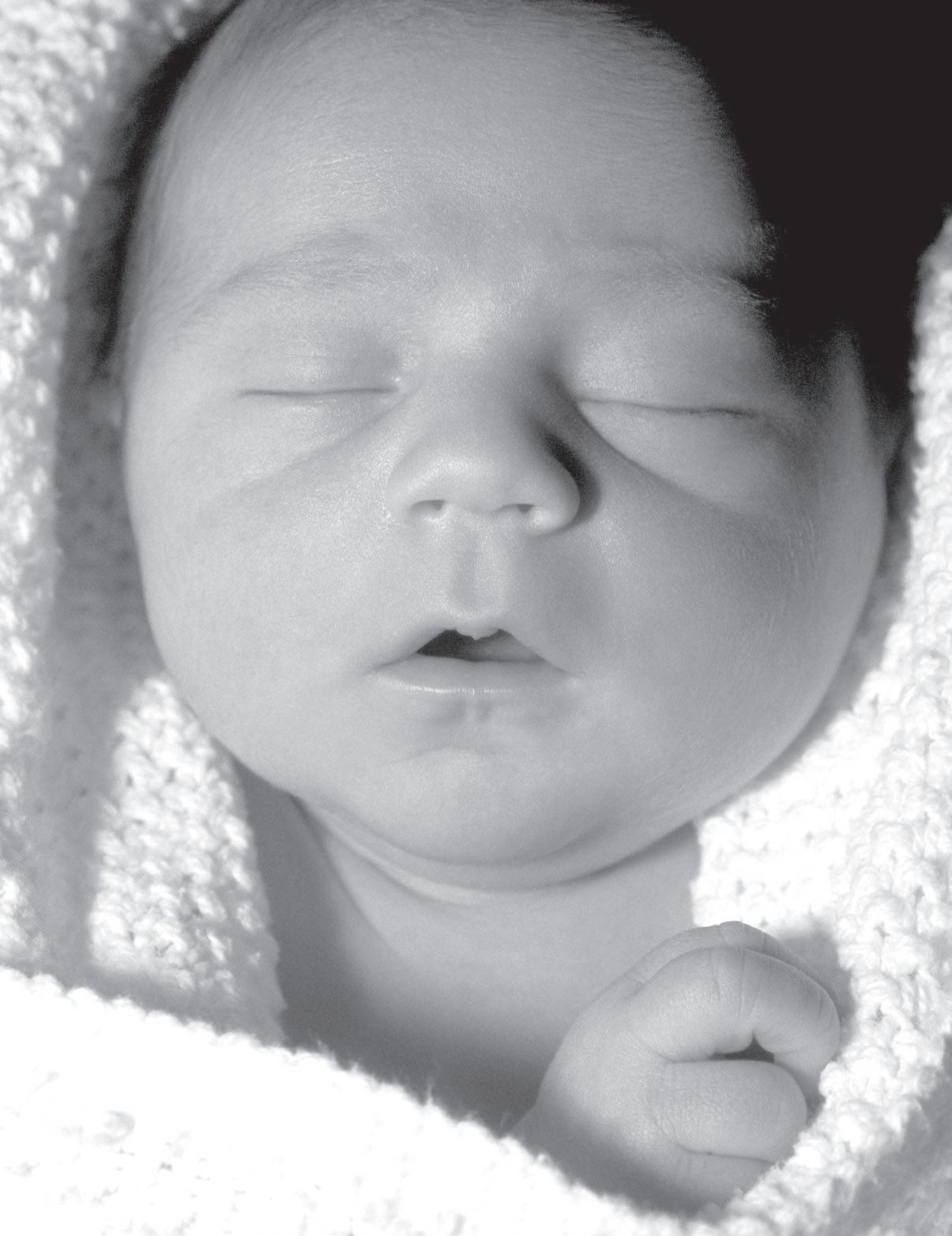
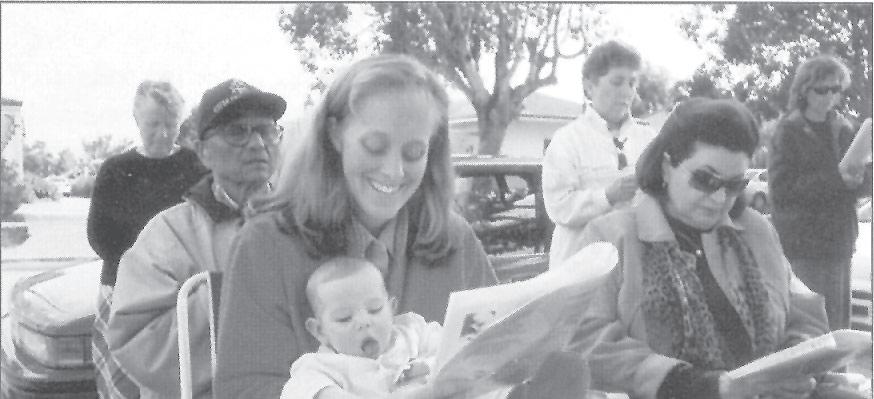
The first are those who acknowledge they are going to kill the baby because of emotional pressure, financial problems, incest, rape.
“Usually these are the angry ones but the easiest to reach out to and offer help.”
The second type is the career minded, who live by today’s slogans of ‘if it feels good, do it’ and ‘my body my choice.’
This week, The West Australian
and Sydney Morning Herald both reported the concern of Federal Health Minister Tony Abbott and his colleague, Christopher Pyne, about the number of abortions in Australia.
Mr Abbott said he understood his colleague’s concerns, considering a quarter of all pregnancies in Australia ended with abortion.
Catholic Health Australia chief executive Francis Sullivan called
been lulled into a sense of ignorance over the tragedy of late term abortions,” he continued.
Health Minister Abbott commented that even pro-choice advocates are concerned about the abortion rate, with 25% of all pregnancies ending in terminations in Australia.
But he said the government has no plans to change existing policy about the public funding of terminations.
“We have something like 100,000 abortions a year, 25% of all pregnancies end in abortion and even the most determined pro-choice advocates these days seem to be rightly concerned at the way the abortion epidemic has developed,” he said.
Australian Federation of Right to Life Associations spokeswoman Kath Woolf, said Medicare funding for late-term abortions needs to be stopped.
“The Federal Government should work to create a community which better supports women and their children.”
One particular story that Mrs Sawyer told was about a woman who was going for an abortion because of financial and personal difficulties.
With two children already, the woman felt she could not cope with another.
Having previously had one abortion, the family car had broken down and was in much financial struggle with unpaid bills.
“We helped arrange for the car to be repaired, the bills to be paid and offered emotional support to herself and the husband,”
The woman gave birth to a baby girl two months ago.
In Western Australia, girls under the age of 16 can have an abortion without parental consent.
Furthermore, abortion is also legal in WA up to 20 weeks gestation.
Mr Pyne said that late term abortions (those after 21 weeks) should be banned and abortions after 12 weeks should be heavily restricted.
“Medical technology is moving faster than law,” Mr Pyne said.
“Babies of such terms were being kept alive in one part of hospitals and terminated in others.”
for the issue to be put on the agenda for the next health ministers’ summit.
“The country’s health ministers should act with a sense of responsibility to uphold the dignity of every life and place on their agenda the establishment of an inquiry into the abortion industry in Australia,” Mr Sullivan said.
“Not only are abortions too easily accessed, the community has
If you feel you are called to stand under the Cross of Christ at this modern day Calvary, in this special act of love for God’s Precious Infants, please contact us. You may call one of the following numbers:
Helen Sawyer: 9402-0349
Francette Calibardy: 9279 3934
People of all ages and backgrounds pray for life outside a Perth abortion clinic.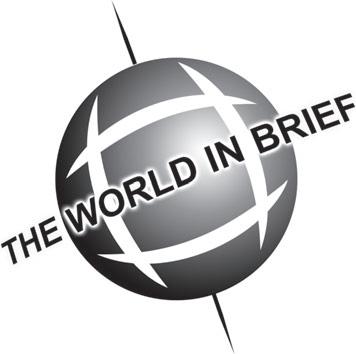
Indonesian Catholics are keeping a close watch on the trial of extremist leader Abu Bakar Ba’asyir to see how the new democracy relates to Muslim fundamentalist groups in that country.
“This is an important test for the new government and the new system of democracy,” a local Catholic told Fides news service. Ba’asyir is charged with being the leader of a network of militants of Jemaah Islamiah, said to be connected with Al Qaeda. If found guilty, Ba’asyir could be condemned to the death penalty.
International observers say the trial is a test for the newly elected President Susilo Bambang Yudhoyono’s promise to fight Islamic extremism. If the punishment inflicted on Ba’asyir who has many supporters, is too harsh it could trigger tension and acts of violence. Over the past few days thousands of Ba’asyir’s supporters chanting cries of ‘Allah is great’, challenged riot police in front of the law courts in Jakarta.
A Turkish court has rejected a request by Mehmet Ali Agca, the Turk who shot Pope John Paul II in 1981, for his early release from prison in light of recent legal amendments.
Agca’s lawyer Dogan Yildirim told reporters outside the Istanbul court that he had asked the judges to set his client free, citing sentence reductions foreseen for some crimes under a major overhaul in September of the country’s penal code.
Following his extradition from Italy in June 2000, Agca was sentenced to seven years and four months for armed robbery committed in the late 1970s, for which he is now serving time in an Istanbul jail.
His lawyers were arguing that he was eligible for early release as the new penal code, enacted to boost Turkey’s bid for European Union membership, cuts down almost by half sentences for robbery.
Agca shot Pope John Paul II on May 13, 1981 in an assassination attempt.
He was sentenced to life imprisonment in Italy, but was pardoned by President Carlo Azeglio Ciampi in June 2000. Agca was brought back to Turkey, where he was imprisoned for the murder of Ipekci.

Years from now, when all the analysis is over, historians might point to a specific moment in the 2004 campaign for president when the tide turned in favour of Republican President George W. Bush over his Democratic challenger, Sen. John F. Kerry of Massachusetts.
It was early July, two weeks before the Democratic convention, and Bush was speaking out in favour of the Federal Marriage Amendment, which would amend the US Constitution to define marriage as the union of a man and a woman.
“Because families pass along values and shape character, traditional marriage is also critical to the health of society,” Bush said in his July 10 national radio address. “Our policies should aim to strengthen families, not undermine them. And changing the definition of traditional marriage will undermine the family structure.”
Some had warned that it was unwise for Bush to put such emphasis on what they viewed as a divisive social policy when voters cared more about Iraq, the war on terrorism and the economy.
But when it was all said and done, 22 percent of all voters across the United States picked “moral values” as the most important issue facing the nation, followed by the economy and jobs (20 percent) and the war on terrorism (19 percent).
Eighty percent of those who saw moral values as the most important issue voted for Bush, according to post-election
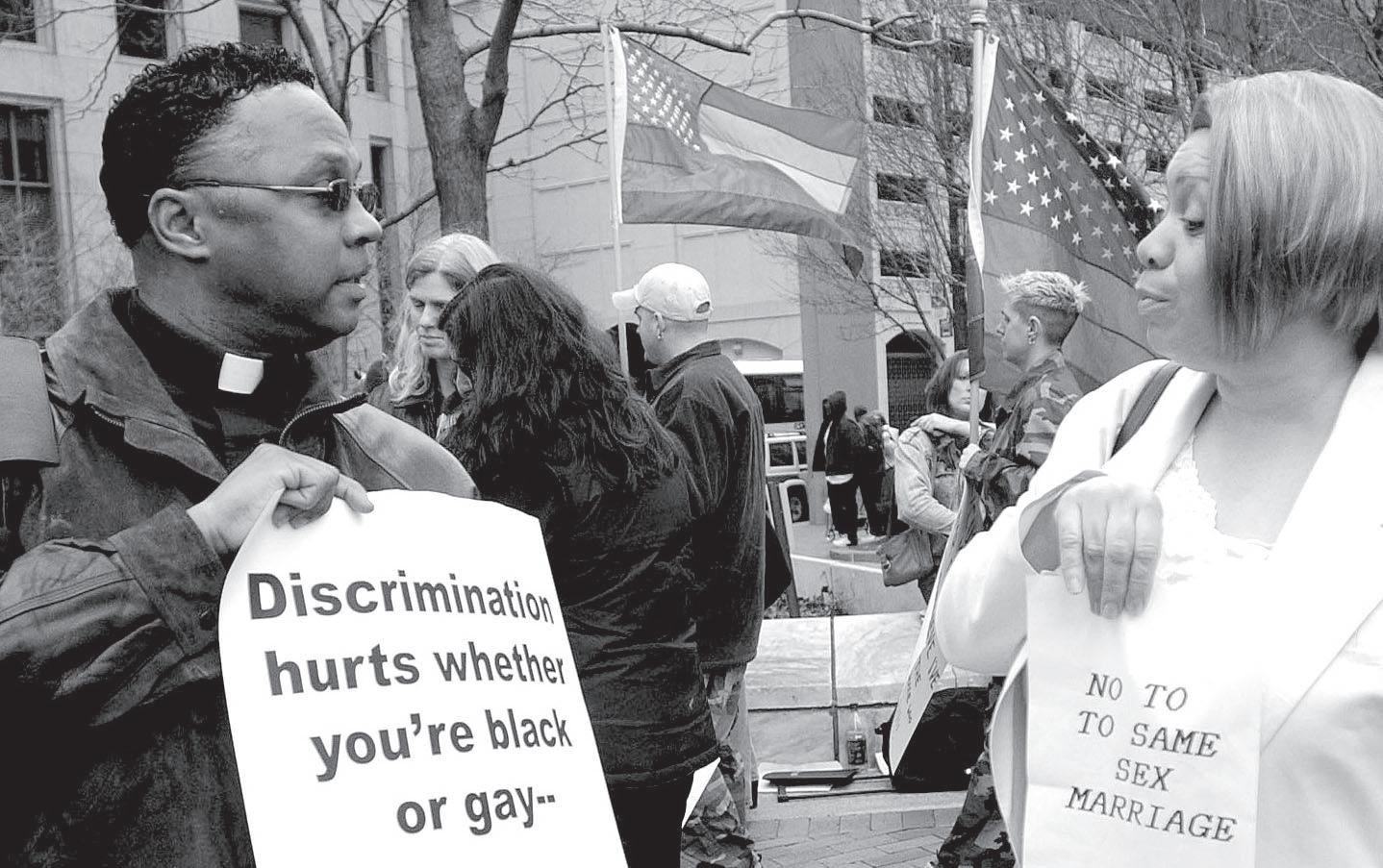
data released by the National Election Pool.
Eleven state ballots included measures similar to the Federal Marriage Amendment, revising state constitutions to limit marriage to its traditional definition.
The measure was approved in all 11 states, including Ohio, where a Bush win secured his victory in the Electoral College, and eight other states won by Bush.
“Clearly the supporters of traditional marriage helped President Bush down the aisle to a second term,” said Tony Perkins, president of the Family Research Council.
Kerry said during the campaign that he favoured restricting
marriage to heterosexual couples, but opposed achieving that through the constitutional amendment process.
Catholic leaders nationally and in the states looking at the issue this year had called nearly unanimously for approval of the federal and state amendments.
Only Oregon and Michigan voters approved the amendment to ban same-sex marriage but chose Kerry over Bush. In each of those states, according to the National Election Pool data, voters picked something other than moral values as the most important election issue. For Oregonians it was the war in Iraq, and for those in Michigan, it was the issue of the economy
and jobs.
Matt Daniels, president of the Alliance for Marriage, said the marriage initiatives brought Bush “a critical bump in support among core Democratic voting groups” that favoured the amendment, including African-Americans, Catholics and women.
Bush “also improved his support among Catholics and women by 5 percent,” he added. “Indeed, America demonstrated broad-based strength and momentum for our Federal Marriage Amendment - strength and momentum that transcends all racial, cultural and religious boundary lines.”
With the Christian population in the Holy Land decreasing from 18 percent in 1948 to less than 2 percent today, the Holy Land Christian Ecumenical Foundation’s mission is to increase awareness among Western Christians of the urgent needs of Christians in the Holy Land.
The foundation and the bishops of the four main Christian churches in the Holy Land did just that at the organization’s sixth annual conference, held Oct. 22-23 at Metropolitan Memorial United Methodist Church in Washington.
With the theme “Holy Land Christians, Rooted in Bonds of Peace,” the conference celebrated the foundation’s growth in a sixyear-period from an organization investing $160,000 to support the Holy Land Christians to one providing $2 million in services this year.
The gathering also focused on how the foundation raises and distributes money for programs that encourage and assist Christians to remain in the Holy Land, as well as how its programs enrich the lives of Western Christians through contacts with Christians
who are the roots of their Christian heritage.
The conference also marked the first time that the heads of the four main Christian churches in Jerusalem came together for an event in the United States.
“We work together all the time in Jerusalem,” said Latin Patriarch Michel Sabbah of Jerusalem. But he said it was the first time he and Episcopal Bishop Riah H. Abu ElAssal, Lutheran Bishop Munib A. Younan and Archimandrite Innokentios, personal representative of Greek Orthodox Patriarch Irineos of Jerusalem, had been at the same US event.
In a keynote talk on October 22, Patriarch Sabbah said problems in the Holy Land “come from the extreme fundamentalism of Muslims, Jews and Christians.”
“Holy places should be places of continuous conversion,” where the mystery of God is revealed and the redemption of man is achieved, the patriarch said. “We are divided in our church traditions; we are not all one, so everyone has to keep his identity.
“But in his faithfulness to his church, he must love the other,” he added. “To love each other is the only commandment given us directly by Jesus. So we must live this commandment, so our faithfulness to our own church is not a barrier. If we love one another, God will
bring us to unity.” The four religious leaders urged US Christians to build bridges of solidarity between Arab and Western Christians, to bring consolation to both the Israelis and the Palestinians and to give good counsel to our nation’s administration in order to act for the benefit of both peoples.
“At the first Pentecost, Arabs from 17 areas were present; the Americans weren’t there,” Bishop El-Assal said. “But you came (to this conference) and you’re the most powerful, and to those which more has been given, much is expected.”
Cardinal Theodore E. McCarrick of Washington pledged in an Oct. 22 talk to remain one with “the beloved Christians of the Holy Land.”
“When you suffer, we are pained,” he said. “When you are abused, we too are illused. When you are humiliated, we too are demeaned. Until you can live in peace, we will not rest. Until you lead your lives in freedom and with justice, we are ready to stand at your side.”
One session included three Jerusalem women - a Muslim, a Jew and a Christian. They shared their frustration and grief living in the midst of the violence in their homeland, as well as their hope for a future of peace.
Non-Americans at the Vatican are often perplexed by the US electoral system, wondering how, for example, a nationwide presidential choice can come down to 130,000 votes in a single state.
Sometime in the coming years, the Vatican will host its own unique form of election called a conclave, and the shoe will be on the other foot: Church leaders will be called on to explain one of the oldest and most arcane systems of voting in the world.
Papal conclaves are not like the popular votes of democratic countries. The approximately 120 electors are all cardinals, all male and all sworn to secrecy about the proceedings, which take place behind a locked door.
When a new Pope is finally chosen, the larger church membership of more than 1 billion Catholics often has no idea how many votes he received or who the other strong candidates were.
The conclave is not an expression of representative democracy, as Vatican officials are fond of pointing out, but recent Popes have made an effort to promote more geographical balance by naming cardinals from Third World countries.
“These cardinals used to be fairly unknown to the world, because for centuries most of them resided in Rome. Now there is a great amount of attention given to them, and the cardinals themselves are travelling and making global connections,” said Msgr Charles Burns, a Scottish historian and retired official of the Vatican Archives.
One of the unique aspects of a papal conclave is that, to a very large degree, it can be shaped by a sitting Pope.
Pope John Paul II, for example, has named all but three of the 122 cardinals who would elect his successor if a conclave were held today.
He has also revised the rules of the conclave, introducing a few substantial changes. One modification allows the cardinals to move more easily to a simple majority vote from the standard two-thirds plus one needed to elect a pontiff.
More than any of his predecessors, Pope John Paul has tried to distribute cardinal appointments to every area of the globe. Places like Ghana and Sudan, where Catholics a generation ago might never have dreamed of having a cardinal, now have a local participant in the next conclave.
That does not translate into a vote for the Catholics of each country, of course.
“It doesn’t work that way,” said Msgr Burns.

“Each cardinal does bring the concerns of his church community to a conclave. But the cardinals do not represent limited groups of Catholics - they come together in a sense of communion, representing the universal church,” he said.
Even with the geographically wide-ranging appointments of recent years, the College of Cardinals remains heavily weighted toward Europe, which today has 61 voting-age cardinals, or 50 percent of the total.
Italy alone has 21 cardinal-electors, or more than 17 percent.
One of the unique aspects of a papal conclave is that, to a very large degree, it can be shaped by a
sitting Pope.
If they were apportioned by Catholic population, Europe would have only 32 cardinal-electors and Italy would have six.
On the other hand, Brazil, the country with the largest Catholic population, currently has only four voting-age cardinals. A perCatholic distribution would give Brazil 17 cardinal-electors.
The geographical breakdown of the cardinal-electors today is: Western Europe, 39 percent; Latin America, 18 percent; United States and Canada, 11 percent; Eastern Europe, 11 percent; Africa, 10 percent; Asia, 9 percent; and Oceania, 2 percent.
The cardinals fall off the conclave voting rolls when they reach age 80, which keeps the average age of the cardinal-electors at a relatively youthful 71 and a half. Of the 122 potential voters today,

Italian brides and grooms marrying in Catholic churches will no longer “take” each other as husband or wife, but will “accept” each other.
“This small change of wording emphasises the fact that the other is a gift, not something that one takes of one’s own accord,” said Father Sergio Nicolli, director of the Italian bishops’ office for the family.
With the first Sunday of Advent, November 28, the Italian Catholic bishops’ new rites and rituals for the sacrament of matrimony go into effect; the texts currently in use were approved in 1969.
“Some of the changes,” Father Nicolli said, “were the result of a deeper theological understanding, while others were motivated by cultural changes,” including the fact that while the vast majority of Italians are baptized Catholics very few attend Mass regularly.

sion for renewing the practice of the faith,” the new marriage guidelines make it clear that the couple’s reception of Communion, even at their wedding, “is reserved to situations in which the couple is properly disposed.”
nearly one-fourth are retired or active officials of the Roman Curia, and most of the rest are residential archbishops around the world.
Strangely, there are no nativeborn Romans among voting-age cardinals today - a fact that sometimes scandalises Catholics in Rome.
In modern times, the whole process of papal death to election of a new Pope typically takes less than a month.
The rules call for consultative discussions before the start of a conclave, but they specifically ban any type of vote-swapping agreements.
“There’s not really lobbying - or if there is, it’s pretty subtle,” said Msgr Burns.
In this election, “moral values” are assumed to be a shared priority among all the voters. But there are no exit polls, because the cardinals are barred from talking about the details of the conclave proceedings.
The outside world rarely intrudes upon a conclave’s deliberations, but there are exceptions.
In the 13th century, cardinals holed up in the papal palace of Viterbo outside Rome for 33 months without electing a Pope, taxing the local supply of food and wine.
Asked by local residents why it was taking so long, the cardinals said they were waiting for the descent of the Holy Spirit.
The residents then removed the roof from the building, saying it would make it easier for the Holy Spirit to come down. Open to the elements, the cardinals quickly chose a Pope. -CNS
Most Italians were under the assumption, he said, that marriage in a Catholic church always took place within the celebration of a nuptial Mass.
“While we hope the marriage preparation period will ensure that the wedding is an occa-
Catholic brides or grooms who are not regular churchgoers or those marrying a non-Catholic are encouraged to use the option of a marriage rite with the celebration of the Liturgy of the Word, not a full Mass, “so that a spouse not able to receive Communion is not put in a situation of difficulty,” he told Catholic News Service. Father Nicolli’s office and the bishops’ conference liturgy office will introduce the new texts and guidelines to priests and marriage preparation coordinators during a conference in November. -CNS
Celebrating religious feasts and seeing the joy they bring to children should encourage adults to take concrete action on behalf of the other children in the world who have nothing to celebrate, a Vatican official said in a message to Hindus.
In offering his best wishes to Hindus preparing to celebrate Diwali, a five-day feast beginning on Nov 12, Archbishop Michael Fitzgerald, president of the Pontifical Council for Interreligious Dialogue, asked for concrete ideas for Hindu-Catholic projects to help suffering children.
The two communities, he said, should “focus our attention on the evils in our society that afflict children: forced labour, forced conscription, the breakdown of the family, trafficking in organs and persons, sexual abuse, forced prostitution, AIDS, the sale and use of drugs, etc.”
“What have children done to merit such suffering?” he asked.
Archbishop Fitzgerald said many Hindu and Christian communities already work together to assist children, “but we could and
should do more, as the problem is serious, indeed it is tragic.”
Diwali, also known as the “festival of lights,” is one of the oldest and most important feasts in the Hindu religion. It celebrates the victory of light over darkness and of good over evil.
The Archbishop said it is difficult, if not impossible, for adults not to be moved by the joy they see on the faces of children celebrating major religious feasts.
“What have children done to merit such suffering?” he asked.
“Children bring shape and colour, taste and flavour, inspiration and aspiration, hope and promise of perseverance to the celebration,” the Archbishop said.
“Indeed, no celebration truly deserves this name unless a central place is given to children, the more so since the festive spirit requires everyone to acquire a childlike heart,” he said.
Archbishop Fitzgerald encouraged Hindus to enjoy their celebration of Diwali, but to do so keeping in mind the plight of suffering children “in your own neighbourhood, in your town, in society in general and, more broadly, throughout the whole world.”
If you’ve ever been on someone’s ‘everybody’ e-mail address list, you know what that means.■ By Dick Reeder
Humans are created by God for personal relationships first with Him, and then in a giving of oneself to another. In general, this gift, like every gift, is worth to the recipient what it costs the giver in time and effort.
We tend to value the gift of a communication received from another person in proportion to the time it takes the other to give it. Thus a personal visit takes more time than a postcard or a phone call and is more greatly valued.
With today’s timesaving technology, one would expect we’d have eons more leisure time than our forebears. Instead, we seem busier than ever, and time is more precious than ever.
Of all verbal communications, an e-mail takes the least time. Seasoned users keep several email address books, each listing groups of people based on their “casual friends,” “family,” “business associates” and so on. Some e-mail users combine all their address books into an “everybody” list. With a click of the mouse button, their message is sent forth to dozens or hundreds of recipients. How many e-mails do you receive daily from people you haven’t spoken with in years?
Sure, it only takes a second to hit the “delete” key, but those seconds add up. And who wants to risk hurting another by clicking “reply” and asking to be removed from their list? Perhaps all e-mail enthusiasts should spend some tirne reflecting on their address books. Might some people value the gift of an e-mail as equal to its cost in time and effort? If it takes someone a minute to bang out a message that they send to 100 people, each one receives
Hair-raising deep-sea thriller about a career-consumed couple (Blanchard Ryan and Daniel

less than a second of the sender’s time. Do those senders think we don’t know that?
I have received e-mail confirmations of orders from a reputable online shoe store that are intended for a lady living 1,000 miles from here. We have identical last names, and our first names begin with the same letter. Somehow, the store has my e-mail address attached to her name. I also once received a resume that was intended for a headhunter because of this same similarity of names.
Identity crisis
E-mail is the great depersonalising agent of our age, surpassing even television. Speaking of technology’s impact on culture, Cardinal Joseph Ratzinger once said that people “are losing their true selves and what belongs to them. Any deeper communication between people is being lost now if it cannot be produced and imparted by these superficial outward forms of relationship and by having mastery of the same technical apparatus.” Man is far more profound he said. “If he is united with others on this superficial level, at the deeper level within he will rebel against this uniformity, because he unconsciously recognises that it reduces him to slavery.”
Speaking of the Internet in 2003, Pope John Paul II said its recent growth “provides an oppor-
Travis) whose island vacation turns into a fight for survival when a mix-up during a scuba-diving excursion leaves them stranded in the middle of the ocean in sharkinfested waters. Inspired by true events and made on a shoestring budget by the husband-and-wife team of Chris Kentis and Laura Lau, the movie follows a simple
■ Reviewed by David DiCerto
Based on the bestselling novel by Nicholas Sparks, “The Notebook” (New Line) is an old-fashioned tearjerker gushing with gilded romance and florid sentimentality. Right from its honeytoned opening credit sequence the message is clear: Heartstrings, prepare to be plucked.
James Garner plays Duke, a resident at a lakeside nursing home. Duke describes himself through voice-over narration as a “common man” who’s “led a common life,” but who takes comfort in the fact that he has “loved another” with all his “heart and soul.”
tunity for expanding the Church’s missionary outreach.” In a letter to a technology convention that same year, the Pope wrote, “The complexity of the communications system in which we move ... causes bewilderment about what is real, what surrounds us and who surrounds us.” This bewilderment, he said, can lead one to ask “Who am I?” and the answer thus obtained “depends to a large extent on the suitability of the instruments used for communication.”
The Pope clearly sees the Internet as a neutral tool, one that can be used for good or for ill. Being the consummate personalist that he is, he likely would frown on the depersonalisation that so often accompanies the use of e-mail by its enthusiasts. So, e-mail depersonalises. But is it really a technological or communications improvement at all?
Consider the perspective of author Richard Todd. Writing in Newsweek (July 30, 2001), he imagined if Alexander Graham Bell had invented not the telephone, but computer e-mail back in the 1800s, and it had gained wide use for many years - and then the telephone came along.
“Imagine the ensuing clamour - direct conversation with anyone, anytime, anywhere,” Todd writes. “E-mail would be in the trash heap, next to IBM Selectrics and mag-card machines.”
- OSVformula for primal-fear success: Take two actors, put them in the water with real sharks and, voila, you have one of the most truly terrifying films in years. Sustained suspense, brief frontal nudity, and scattered rough and crude language. The USCCB Office for Film & Broadcasting classification is A-III - adults. - CNS
tles back and forth between past and present, as it becomes abundantly clear that the old couple’s story is somehow linked to that of the young lovers. If truth be told, any of the geezers at the home could see where this one’s heading - even without their glasses.
“The Notebook” is the kind of film that will generate strong reactions. Some will undoubtedly be turned off, quickly dismissing it as mawkish melodrama. Others less cynical will see this valentine for
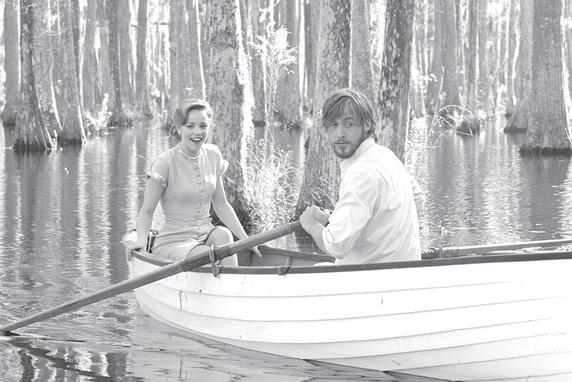
Viewers are led to surmise that the object of his affection is Allie (Gena Rowlands), an Alzheimer’s patient at the facility. Duke spends each day reading aloud to Allie from the eponymous diary that chronicles the saga of a pair of young, star-crossed lovers in North Carolina during the 1940s.
The notebook serves as a bridge between past and present, as the tale recounted in its pages takes centre stage.
The story-within-a-story involves a prep school debutante, also named Allie (Rachel McAdams), who, while vacationing with her well-to-do parents, falls for Noah (Ryan Gosling), a dashing mill worker from the wrong side of the tracks.
As soon as he sets eyes on Allie, Noah is smitten, certain that they are destined to be together - a sure sign that their hearts are in for a bumpy ride.
Their passionate summer fling is chilled by the wintry disapproval of Allie’s class-conscious mother (Joan Allen) and ends in a teary-eyed breakup.
Life goes on. Noah ships off to fight the Nazis. Allie gets engaged to a soldier (James Marsden) of acceptable pedigree she met while volunteering in a GI hospital. But, as fate would have it, their paths cross several years later, both still madly in love with each other.
Director Nick Cassavetes shut-
Sleek and stylish crime thriller set in Los Angeles about a cab driver (Jamie Foxx) forced to drive a contract killer (Tom Cruise) on his appointed rounds to assassinate five federal witnesses in the span of one night. Returning to familiar genre terrain, direc-
what it is, a wonderful, old-time love story replete with glowing photography, unabashed ardor and rapturous rain-soaked reunionsfull of Hallmark heavy-handedness - but ultimately heartfelt.
Sure, it could use more understatement and less syrupy shots of swans, but as Dean Martin would say, “That’s amore!” (Viewer warning: If your tear ducts have not swelled by the film’s end, you may need to call an ophthalmologist.)
McAdams is radiant as the spirited Southern belle; Gosling is soulfully appealing. Together they exude youthful energy and passion. Likewise, old pros Garner and Rowlands bring an autumnal dignity to their roles.
The film’s underlying message - that true love cannot only overcome all adversity but can in fact work miracles - should resonate with Christian viewers. And while one scene in particular is a bit racy, overall the film is a tender and touching portrait of marital fidelity, as witnessed by Duke’s unwavering dedication to Allie. This is nowhere more beautifully illustrated than during the picture’s three-hanky final scene.
A word to the wise: Bring plenty of tissues.
Due to a few sexual encounters with shadowy nudity and recurring profanity, the USCCB Office for Film & Broadcasting classification is A-III - adults. - CNS
tor Michael Mann crafts a tautly paced, multilayered film oozing with LA noir moodiness and hardboiled menace, by turns violent and reflective in tone, featuring knockout performances by Cruise and Foxx. Recurring intense violence, autopsy gore and much rough language.
The USCCB Office for Film & Broadcasting classification is Llimited adult audience, films whose problematic content many adults would find troubling. - CNS Read it
BRICK re-pointing. Phone Nigel 9242 2952
ELECTRICIAN, Power/ light points from $50 each. Rewiring our speciality. 0418 941 286, 9279 5008.
PERROTT PAINTING Pty
Ltd for all your residential, commercial painting requirements. Phone Tom Perrott 9444 1200.
PICASSO Painting. Top service. Phone 9345 0557, fax 9345 0505.
RETAILER of Catholic products specialising in gifts, cards and apparel for baptism, communion and confirmation. Ph: 9456 1777.
Shop 12A, 64-66 Bannister Road, Canning Vale. Open Mon-Sat
- b/front, spec views across bay, pool, close to shops, sleeps 8 in comfort, Ph 0408 904 862
IN LOVING memory of Guy Woodrow LAWTON. 20 years have gone since we said goodbye, we think of you in silence and keep you close to our hearts. Loved husband of Connie, and beloved dad and grandad. God Bless
Sunday November 14 ETERNAL WORD TELEVISION NETWORK
1 - 2 pm on Access 31. This week we have a program featuring an interview with a well-known guest, who visited Perth not so long ago, and who has an important message for all members of the community, especially for youth: Theology of the body; Christopher West with Fr Francis Mary Stone (Life on the Rock Series). We are urgently in need of funds to keep this valuable program going on Access 31. The cost is almost $300 for 52 minutes air time. Without your help we cannot keep going for long. Please send donations to the Rosary Christian Tutorial Association, PO Box 1270, Booragoon 6954. Phone: 93301170
Sunday November 14
GATE OF HEAVEN
APARACIDA’S CAFE EMPORIUM , Delicious meals, unique giftware for all occasions. Regualr workshops and seminars, catering for office and other groups, giftware for schools, parishes, individuals. Ph: 9470 1423, 0414 624 580, email: aparacidas@myaccess. com.au
Please join us this Sunday at 7:30pm on 107.9 FM, Radio Fremantle, for more Global Catholic Radio. This week we will feature:
(1) Household of Faith; Purgatory with Rosalind and Kris Franklin.
(2) The Late Archbishop Fulton J Sheen; Heaven. (3) Defending Life; Civil Rights Movement with Fr Frank Pavone Donations toward the program may be sent to Gate of Heaven, PO Box 845, Claremont, WA 6910. Programs subject to change without notice.
Wednesday November 17
Hills and Eastern Suburbs
MENTAL HEALTH SUPPORT
Group
Due
or
CATHOLIC looking to invest in existing business as a working partner, $100k - $300k. Please call John 0422 751 406.
Have you ever wondered how you can get support for managing your finances and affairs for yourself or someone you care about? The office of the Public Advocate and Guardianship Board may be the answer. The next meeting for Lesmurdie support group will be held from 7.30-9pm at Our Lady of Lourdes Hall, 207 Lesmurdie Rd, Lesmurdie. Mr Malcolm Innes from Dayspring Christian Ministries and from the Office of Public Advocate at the Ministry of Justice will be the guest speaker. Malcolm is prepared at the conclusion of the talk to answer any questions from the group. Malcolm, himself, works in Christian Ministry and has a son with disabilities.
Wednesday November 17 & 18
EVENINGS OF RETREAT
American Conventual Franciscan
Fr Patrick Greenough OFM (Conv) will lead Marian evenings of retreat at Isaia House of Prayer, 18 Teague St, Burswood at 7.30pm. Phone 9444 0352 for reservations. Entry by donation.
Saturday November 20
COMMUNITY DAY
To be held at St Mary’s Church, Swan Anglican Parish, Yule Avenue Middle Swan 10am – 4pm. Bring own lunch – tea/coffee provided. The day will include periods of
meditation and presentations on the forgotten Desert Mothers and Meditation and an exploration of suffering. Enq: 9444 5810
Saturday November 20-21
GARAGE SALE & SAUSAGE SIZZLE
Crossroads Community, 6 Council Place, East Fremantle between 9am – 5pm. If you have any items that you can donate please contact us on 9319 8344. See you there.
Sunday November 21
SCHOENSTATT SHRINE
St Francis Xavier Parish and Xavier Catholic School invite you to attend Christ the King Celebration and anniversary of the blessing of the Schoenstatt Shrine. 11am Holy Mass, followed by Eucharistic procession and blessing. After the solemnities enjoy a free sausage sizzle. Schoenstatt Shrine, 9 Talus Drive, Armadale. Enq: 9399 2349 or shrine@elink.net.au
Sunday November 21
BUNBURY BUS TRIP & DINNER
In celebration for the Feast of the Presentation of BVM, Bus to Bunbury leaving 12.30pm returning later in the evening. Mass 5pm at St Mary’s South Bunbury then sumptuous 3 course dinner including extras and house wine at Sonsenza’s Restaurant in Victoria St Bunbury. Tickets include bus trip and the three-course dinner and wine. All welcome. Enq: Fr Michael Rowe 9444 9604.
Sunday November 21
TAIZE MEDITATIVE PRAYER
Come and join in the prayer 7- 8pm using the Taize chants in a candle lit chapel. Time for silent prayer Bring along your torch Sisters of St Joseph Chapel, 16 York St, South Perth. Enq: Sister Maree 9457 3371
Friday November 26
ADVENT VIGIL
At St Cecilia’s Parish Centre Floreat 6-9pm Enq: 9444 5810.
Sunday November 28
CHRISTMAS ADVENT PILGRIMAGE
Come join us in prayerful preparation for Christmas. Prepare your heart and home with blessings at Christmas. Come with your family and make it a family day with Mary’s Companion Wayfarers of Jesus the Way at the Schoenstatt Shrine in Armadale Hills. 11.45am Assemble at Armadale Train Station (Arrive by train or drive and utilise the train station parking); 12pm Angelus; 12.05pm Rosary Walk to Schoenstatt Shrine; 12.30pm Pilgrimage Program with Holy Mass and BYO Lunch. 3pm Divine Mercy, Benediction and Rosary Walk to the Train Station. Experience first hand pilgrimage spirituality with its longstanding Christian tradition. Sister Lisette 9399 2349, or All Saints Chapel 9325 2009.
Sunday November 28
90th ANNIVERSARY
Former Priests, Parishioners and Friends of St Kieran’s Parish, Osborne Park are cordially invited to the Blessing and Official ReOpening of the extensively refurbished Parish Centre on the 90th Anniversary of its Building. The Celebration will be held after the 8.30am Family Mass, followed by Morning Tea. Principal Celebrant: Bishop Donald Sproxton. All welcome! Enq: Fr Gatt on 9444 1334
Monday November 29 –December 2 MEDITATION WORKSHOP 6-7.30pm each evening an Introductory Workshop on Christian Meditation at Maria’s on the Terrace, 1st Floor, 14 South Terrace Fremantle. Bookings Essential 9444 5810.
Tuesday November 30
ADVENT RETREAT/REFLECTION MORNING
Come aside and rest awhile and take time out of the busy schedule of the day. 9.30am – 12.30pm Mary Mackillop Centre, 16 York St South Perth. For registration, cost and enq: Sister Maree Riddler 9334 0933.
Wednesday December 1
LET PEACE BE WITH ME Evangelisation Concert 7-9pm Main Hall, South Perth Civic Centre, South Terrace, South Perth. Proudly presented by the WA Indonesian Catholic Community, Perth Chinese Catholic Community & The Friends of Jesus’ Passover of Hong Kong. Enq: Sr Margaret Ng 9375 5129 or Augustine Lai 9310 4532.
Saturday December 4 ANNUAL GATHERING
10am – 3pm St Cecilia’s Parish Centre Floreat. Annual gathering of Christian Meditation Group Members and Group Leaders. Enq: 9444 5810.
Saturday December 4
ANNUAL GENERAL REUNION
Rev Fr Jim Shelton and the Executive of Comitium extendsto all members of the Legion of Mary an invitation to attend the Annual General Reunion to be held in The Venerable Edel Quinn Centre 36 Windsor St East Perth commencing with Rosary and Opening Prayers at 2pm followed by entertainment and fellowship concluding at approx 4pm with the Closing Prayers. Please bring a plate.
Sunday December 5 ANNUAL ROSARY PROCESSION
In honour of Our Lady of the Immaculate Conception at St Joseph’s parish church, Hamilton St Bassendean. Followed by Benediction of the Blessed
Sacrament. Light refreshments in the hall afterwards. In preparation for this event a Tridiuum of Rosaries and Masses will be held on: Wednesday December 1 at 7pm, Thursday December 2 at 7pm and Friday December 3 at 7pm. Enq: Fr Bogoni 9279 1549, Colin 9279 9750, Vince 9279 4812 or Renato 9279 2163
Monday December 6 - 10
ADVENT RENEWAL MISSION
A Renewal Mission aimed at putting the focus back on the important season of Advent will be held in the Redemptorist Monastery Church, North Perth. Each evening will begin at 7.30pm and is centred around a major sermon topic. The week will be a celebration of our faith and a time to prepare for the great feast of Christmas. The morning Masses at 6.30am and 11am will also include special Advent homilies. Everyone welcome. Enq: 9328 6600.
Sunday December 12
CELEBRATING THE GOSPEL OF LIFE
Honouring Our Lady of Guadalupe, Patroness of the unborn, Feast Day. 4pm Holy Hour 5pm Procession and Holy Mass. All Saints Chapel 77 Allendale Square, Perth. Supporting organizations are Right to Life, the Legion of Mary, the Marian Movement, the Santo Padre Pio Prayer Group, Mary’s Companion Wayfarers of Jesus the Way, and the Knights of the Southern Cross. Come and join in! Bringing a plate is greatly appreciated.
Monday February 21 – 25
PARISH MISSIONS & WEEKEND/ DAY RETREAT
Fr Justin Belitz, Franciscan Friar and author leads the Missions and a Weekend/Day Retreat. The Missions will focus on meditation and prayer as the basis for setting goals for a balanced life, understanding one’s life mechanism and living a love –filled life. The Retreat’s topic will be: The Power of the Inner Voice. Mission
Venues: Bunbury, St Patrick’s Cathedral Parish. February 21-25.
Contact: Dick 97214651. Morley, Infant Jesus Parish, March 6-10.
Contact 92768500. Armadale St Francis Xavier Parish. March 16.
Contact 93992143. Weekend/Day Retreat, Peace be Still, Chittering, March 18-20, day retreat March19.
Contact: Wendy 95718108
2005 JOSEPHITE CALENDARS
With Mary Mackillop’s words, inspirations from her writings matched with attractive coloured photos. Major Church feasts, Sundays of the Liturgical year and many other features. Suitable for home, office, staffroom, class room waiting room etc. For price and to order call Sister Maree 9334 0933.
After years of unbelief, a conversion to evangelical Christianity and then Catholicism, US layman Mark Shea has worked through a progression of belief in the Real Presence of Christ in the Eucharist.
Now, Shea is a senior content editor for Catholic Exchange, a speaker for Catholic Answers and author of many books, including This Is My Body: An Evangelical Discovers the Real Presence published by Christendom Press.
How did you as a former evangelical discover and come to believe in the Real Presence in the Eucharist?
Shea: I was a convert from no religious background at all. Once I became a believer, I felt it my duty to learn from the people whom God had placed in my life to teach me.
But the group of Christians I happened to fall in with after I became a believer celebrated no sacraments at all, not even baptism or the Lord's Supper. They were charismatics of a nondenominational flavour and had picked up on a sort of hyper-spiritualism that tended to emphasize the spiritual - read: "disembodied" - at the expense of the physical, the human and the liturgical.
The idea I was taught as a new convert was that "True baptism is baptism in the Holy Spirit; true communion is when the Christ in me communes with the Christ in you," etc. Physical rituals such as Communion were regarded as part of the dead letter, rather than the Living Spirit. Liturgy was seen as mere rote repetition of meaningless prayers.
True prayer was always and only to be spontaneous, unstructured and unpredictable, as the Spirit blows where he will. And, of course, supremely, the notion of the Real Presence was regarded as a classic piece of medieval hocus-pocus that had drifted into the Church of the Dark Ages.
Our standard text on the rare occasion that Communion came up was John 6:63: "The Spirit gives life; the flesh counts for nothing. The words I have spoken to you are spirit and they are life." By this, we took it as obvious that true Communion was communion with the Holy Spirit and that physical Communion was fleshly and unnecessary.
It may have been helpful to the spiritually weak in ages past. But now God was doing a new thing on the earth and those who were attuned to his Spirit no longer needed such audiovisual aids as a crutch.
My difficulties with this view of Eucharist, which grew over time, grew quite reluctantly. For I felt, and still feel, that I owe these first brethren in Christ a debt of gratitude that I shall never be able to repay. It was they who first showed me the love of Christ, taught me to pray and to read my Bible. They showed me by example how to live out a life of faithful discipleship.
But various problems began to pile up, in more or less haphazard order that took me a long time to sort out.
If the physical is unimportant, why did the Word become flesh? If we are saved by the shed blood of Jesus Christ, then what is so silly about the idea of receiving that blood - and not just a symbol of it - in Communion?
If ritual is always bad, then why have we practiced the ritual of daily Bible study?
If Catholics are "re-sacrificing Jesus," then how come the Catholic Church condemned the idea that you can resacrifice Jesus? If you can appropriate
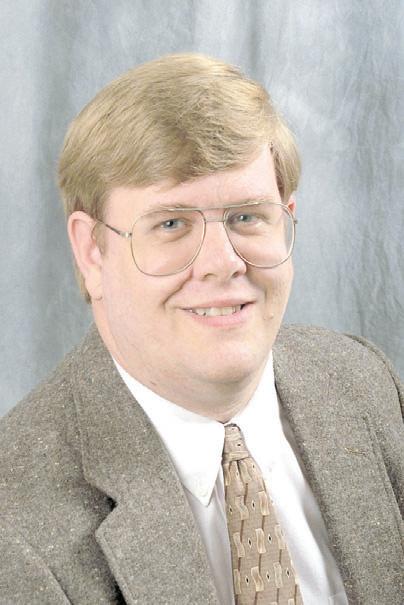
the sacrifice of Jesus verbally - by asking Jesus into your heart as your personal Lord and Saviour and by "pleading the blood of Christ" - why can't Catholics do it sacramentally? If it's just a symbol, then how come nobody got that memo for the first thousand years of the Church?
"The Catholic faith combines thin and thick religion. You are bound to an enlightened ethical code, but you are also commanded to participate in a ritual blood feast. Many moderns simply recoil at this and want to de-nature it into a mere symbol.”
These and many other questions forced me to examine Catholic teaching, which I'd always assumed was something like a huge mass of barnacles that had encrusted itself on to the once-pristine hull of the Bible.
I discovered, to my surprise, that Catholic teaching was, in fact, simply the fully grown mustard plant and the biblical teaching was the compact mustard seed.
In a word, as I examined the various Protestant critiques of the doctrine of the Real Presence I found them to be less biblical than the Church's simple and straightforward understanding of the words "This is my Body."
Question: What is the least understood thing about the Blessed Sacrament - for laity and for nonCatholics?
Shea: I'm not an expert on that question, but if the occasional survey and my own experience as a nonCatholic - which was pretty typical - is any indication, I think it is precisely the Real Presence that is the least understood.
For non-Catholics, this should be expected and explained with patience and not a thin skin. After all, the doctrine does look, at first blush, to be an almost picture perfect example
of some sort of odd superstition. The idea of a God who becomes incarnate so that his worshippers can eat him and gain his virtues seems like something out of pre-Abrahamic savagery to both the secular and even many Christian minds.
Yet, C.S. Lewis has aptly described Christianity as a curious combination of "thick" and "thin" religion. Thin religion is like consommé. It consists of ethics, maxims, reason, wise saws and modern instances. Unitarianism is an example of a thin religion.
Thick religion is full of mysterious rites, blood, sacrifice, wonder and terror. Its adherents are commanded to do things and it's not altogether clear why, only that it is crucial to obey. Old Testament Judaism had many thick elements, as did many a pagan mystery cult.
The Catholic faith combines thin and thick religion. You are bound to an enlightened ethical code, but you are also commanded to participate in a ritual blood feast. Many moderns simply recoil at this and want to denature it into a mere symbol.
Even many Catholics want to escape this seemingly barbarous connection with blood and sacrifice and turn the Eucharist into nothing more than a family meal where the main purpose is for the members of the congregation to affirm each other in their "OK-ness" - a very thin religion thing to do.
But Jesus won't let us. Right into the middle of all that comfy suburban glad-handing he keeps thrusting the words "This is my body. This is my blood."
The stench of the Sacrifice - and the mystery of the Resurrection - keeps us from forgetting what our sins cost him and what he has won for us. He will not let the faith drift off into being a mere concept. He insists on keeping it incarnate.
Question: What does the controversy of pro-abortion politicians receiving Communion say about respect for the Blessed Sacrament?
Shea: I think it reflects pretty clearly the confusion within the Church about the Real Presence in the Eucharist.
If Communion is simply and solely the family meal in which we all affirm the bonds of togetherness in this beautiful symbol of sharing and caring, then naturally, if you believe this, you are going to think it churlish to turn somebody away from the table over politics.
But if the meal is also the body and blood of Jesus Christ, sacramentally present as the sacrifice for sin, then the question of our discipleship before God is also at stake.
Suddenly, Paul's stark warning that the one who eats and drinks unworthily is guilty of the body and blood of the Lord comes into focus. It becomes a real issue as to whether you can simultaneously ask for life for yourself while actively labouring to deny life to others.
So it becomes all the more vital to educate people about what the Eucharist is, if we hope to get them to think clearly about what the Eucharist means and how the Eucharist must

be respected by living lives of real discipleship and not mere room-temperature togetherness.
Question: How have the writings and pontificate of John Paul II contributed to a greater understanding and love of the Eucharist?
Shea: I think, more than anything, the Holy Father has contributed to my understanding and love of the Eucharist by living and, paradoxically, dying in union with it.
People have wondered why he doesn't resign and give the burden of the papacy to somebody else, what with his ill health. But he is showing us, as a living sacrifice, what it means to give all.
He is showing us that we are human beings, not human doings, and that the worth of a person is not diminished by the weakness of his or her body.
In that, I see the peculiar hidden quality of the Eucharist, where Jesus disguises himself as a rather uninteresting piece of bread and sip of garden-variety wine - yet the central glory and mystery of the universe is right there.
Question: What is the significance of the Holy Father choosing this year as the Year of the Eucharist?
Shea: For me, the significance is the way it stands in stark contrast to the way the world is going at the present time. Everybody is screaming that the solution to life is through power and conflict: class conflict, race conflict, gender conflict, religious conflict. The goal is thoroughly Darwinian: survival of the strong.
In the Eucharist, a pattern for life from another world is shown us - a world in which love and humility, not power and domination, will finally be rewarded by our God.
Question: What are your hopes for the Church's growth in knowledge of and reverence for the Eucharist this year?
Shea: I'm hopeful that God will continue to do for us all what He's been doing for me: revealing His amazing and beautiful act of love in the Sacrifice of the Mass.
The paradox of the Real Presence is, of course, the paradox revealed by Jesus: Seek first his kingdom and everything else will be added to you as well.
The Eucharist is indeed a family meal around the table. When we are baptised we become part of God's family. But if we try to reduce the Eucharist to just a symbol or just a moment of being family, we get nothing in the long run.
But if we allow the Eucharist to be what it, in fact, is - the body, blood, soul and divinity of Jesus the Christ - and live our lives in discipleship to the full meaning and implication of that fact, we will find that we have become members of the family without even trying to do so.
I pray and hope that this year, God will increase his family in love and gratitude for the immensity of the sacrifice who is Really Present in the Eucharist.